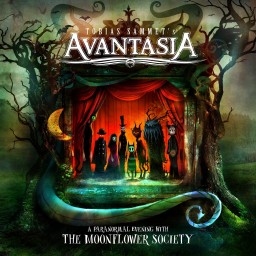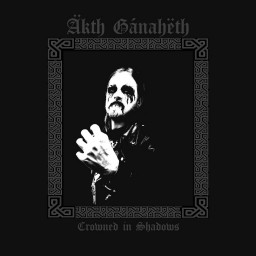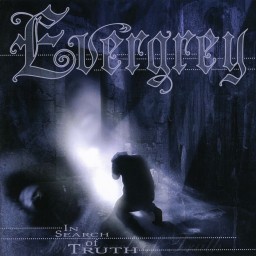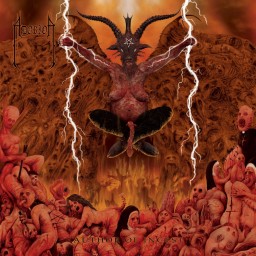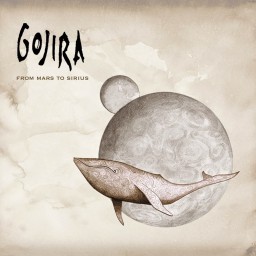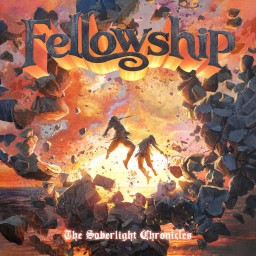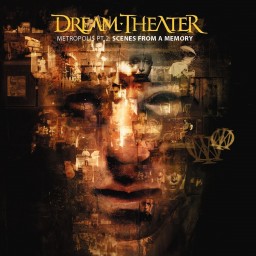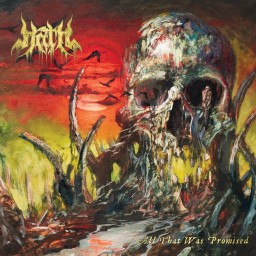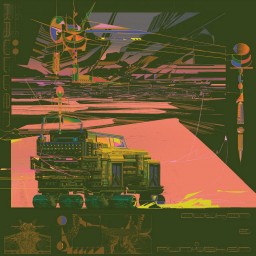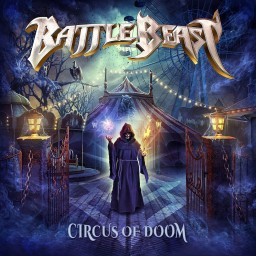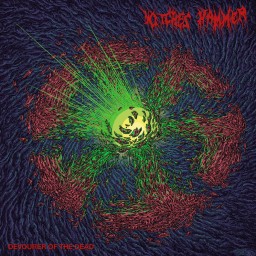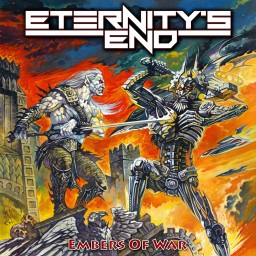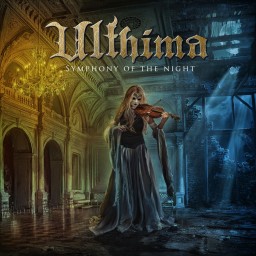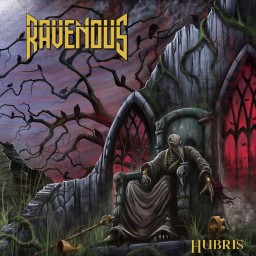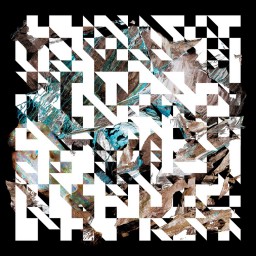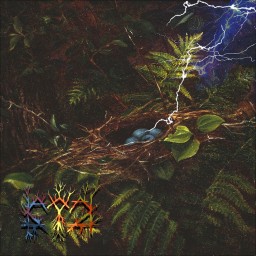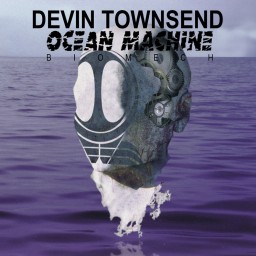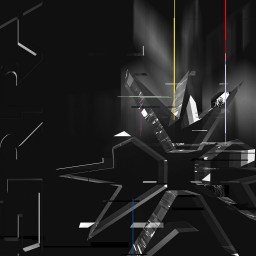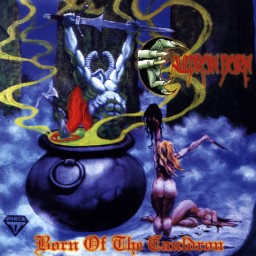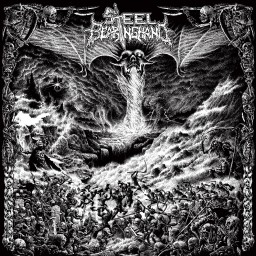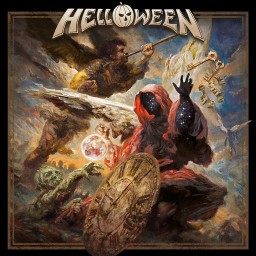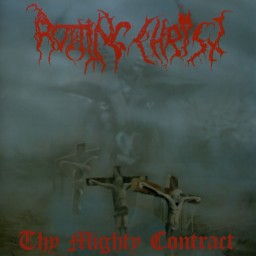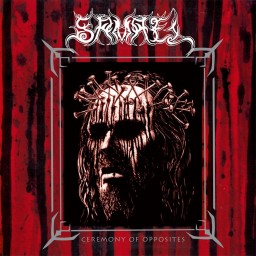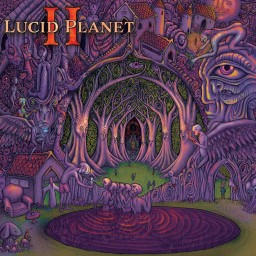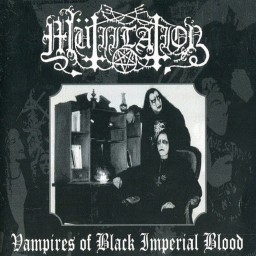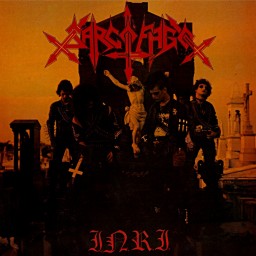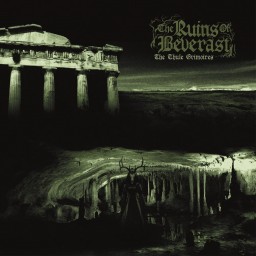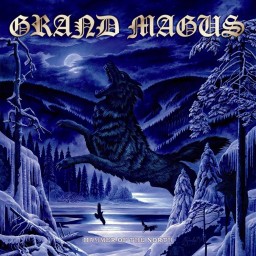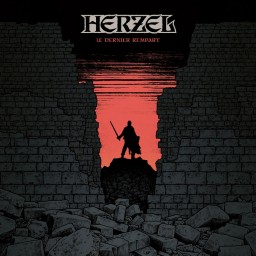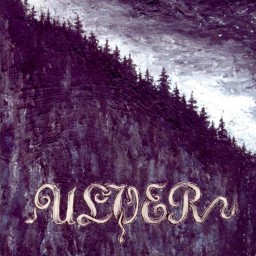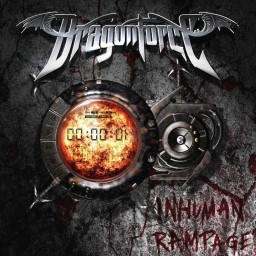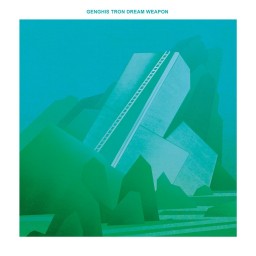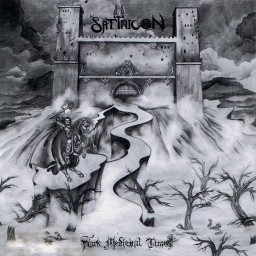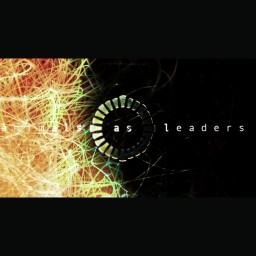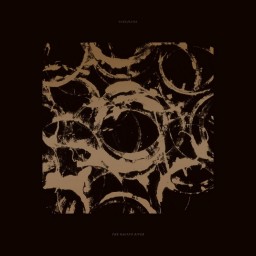Xephyr's Reviews
An Ordinary Eventide
As a fan of Power Metal, I always find myself looking forward to Avantasia's newest offerings with an immense anticipation that I don't get from a whole lot of other bands. Mastermind Tobias Sammet and his never-ending lineup of talented Metal guest vocalists have been at it for quite a long time now and while his imagination hasn't waned, A Paranormal Evening with the Moonflower Society sees a return to normalcy for the project after the absolutely stellar Moonglow. As someone who believes that Moonglow is far and above Avantasia's strongest album, Moonflower Society had a lot to live up to as the artwork and initial singles pointed towards an exciting extension of the more fantastical and whimsical themes presented on their previous album. The Burtonesque imagery made me hopeful as I could picture a world where this sort of style could be conveyed very well given Sammet's compositional style, but as I spent more time with Moonflower Society, I can't help but admit this is another missed opportunity for a Power Metal album to stick to any sort of identity despite there being some strong tracks within.
Despite my bias towards Avantasia, I have to admit that their albums are a mix of great and forgettable songs that, while they utilize their guest vocalists very well, fail to be incredible album experiences most of the time. As someone who isn't exactly a fan of the original "Metal Opera" concept, even stronger albums like Ghostlights or The Wicked Symphony are somewhere middling affairs that have unforgettable tracks like "Runaway Train" or "Ghostlights", but also have forgettable ones like "The Haunting" and "Forever Is A Long Time". Sadly, Moonflower Society goes back to this cursed formula with "The Wicked Rule The Night" being one of the best songs Sammet has ever written, and tracks like "Paper Plane" and "Rhyme And Reason" being straight up head-scratching. What remains fantastic about the Avantasia project, though, is its ability to bring in all sorts of talented vocalists and place them on tracks that rival or even surpass their own band's material, regardless of whether it's a strong Avantasia song or not. I bring attention to this mostly because of Floor Jansen and Jorn Lande, whose voices deserve much better than what their most recent material has given us. Both of these vocalists get ample time to shine and, as a Power Metal fan, I'm absolutely thankful for that as Sammet has a knack for bringing out the best in these artists in his songwriting. The rest of the staple guests are still around, like Bob Catley, Michael Kiske, Eric Martin, and Ronnie Atkins, but the absolute staple of Moonflower Society is Ralf Scheepers of Primal Fear and his incredible performance on "The Wicked Rule The Night". The trio of Lande, Kiske, and Sammet come close on the closing track "Arabesque", but Scheepers honestly just blows them out of the water on this one. That being said, Sammet sounds much more confident in his lead vocals and especially in his harmonies this time around, going blow for blow with the likes of Kiske and Jansen in some of the best ways possible. I can understand Sammet's voice being an acquired taste, especially on his more theatrical tracks like "Welcome To The Shadows", but he absolutely has the chops to support his newer and even more bombastic songwriting.
Moonflower Society continues Avantasia's trend away from the classic Power or Heavy Metal influences and towards a more mystically symphonic approach that's even more about the hooks than before, if that was even possible. While I'll admit that Avantasia's music has always had shades of being this hook-laden, I think that Moonflower Society ups the ante a bit too much even for my taste. The album feels a bit simple and straightforward compared to what Sammet seems to be capable of, with most songs coming in at around the 4-minute mark and only one breaking the 6-minute barrier. Obviously the length of a song doesn't tell the whole story, but at the same time it leaves me wanting a bit more out of the songwriting as a whole. The album is varied enough, though, with "Welcome To The Shadows" and "The Moonflower Society" living up to the album's theme with mystical, bouncing keyboard rhythms and a slightly creepy atmosphere, while "The Inmost Light" invokes a classic Helloween sound and "Misplaced Among The Angels" coming in as the staple Avantasia power ballad. As much as I'd like to say I'm above Sammet's cheesy power ballad writing, I can't help but consider "Misplaced Among The Angels" one of Avantasia's best with its sweeping but driving melodies and incredible harmonies between Sammet and Jansen. That being said, "Paper Plane" has to be one of the most useless ballads I've heard out of them with its boring chorus and unexciting buildup. "Rhyme And Reason" also has to be one of the most confusing Avantasia tracks I've heard, with the swing melody and frankly annoying chorus really not working in any shape, form, or fashion. "Scars" and "I Tame The Storm" also fall victim to being uninteresting overall, the former not having anything to distinguish it and the latter having a noticeably weak chorus despite having Lande on vocals. Plus, "Arabesque" may be one of Avantasia's weakest epics to date with a neat but incohesive spread of ideas ranging from bagpipes, to suitably Middle Eastern strings, to standard Power Metal operatic fare. The harmonies between Sammet, Kiske, and Lande are always wonderful to hear, but it really feels like the song ends right when it's getting started despite being ten minutes long.
It may have been the expectation of a follow-up to Moonglow, but Moonflower Society sadly misses the mark for me in a lot of ways. That being said, it's still a perfectly fine album that will have any Power Metal fan salivating at the vocalist lineup alone, which is something that Avantasia has consistently been able to deliver on. Hearing Floor Jansen loud and centered in the mix alongside Sammet on "Kill The Pain Away" is fantastic and Jorn's features in "Arabesque" are the best you're going to hear him this year, so this project continues to do its job and truly highlight these talented artists. At the same time, the overly pandering "Welcome To The Shadows" and the solid "The Moonflower Society" are the only two songs that were really able to invoke the supposed theme of the album, which is a shame considering the album seems pretty lost in the rest of its runtime. In retrospect I think I'm being a little harsh on Moonflower Society considering I'd still consider it to be a step above the average run-of-the-mill Power Metal album, but at the same time the weaker half of this album's tracklist is pretty weak in comparison to their past albums. It has enough highlights for me to recommend it above their more average albums, but I can't help but be disappointed in the overall simplicity of it all.
Genres: Power Metal
Format: Album
Year: 2022
Gánahëth, Äkth Gánahëth
In many ways, obscure, one-person projects are the lifeblood of the Black Metal genre as talented and novice musicians alike can produce material that is faithful to the beginnings of the genre despite recording and performance shortcomings. Äkth Gánahëth is yet another one of those projects, this time hailing from Iceland and possessing a heavier Dungeon Synth background than most other projects. As the gripping album cover would suggest, Crowned In Shadows is a general-purpose Black Metal experience with cleaner and more modern production value. The lead guitars still have that nice Black Metal grind to them and there's a decent split between flurries of tremolo and more rhythmic, marching chugs that have a unique twang to them from the cleaner sounding lead guitar. That weird twang that shows up on "Brimstone and Ash" and especially "Crowned In Shadows" had me scratching my head, trying to figure out what it reminded me of, until I finally landed on the iconic guitar part of the James Bond main theme. I'm not entirely sure whether that's a positive or a negative in the context of a Black Metal album, so I'll just say it definitely got a chuckle out of me. The drums and vocals are suitably pushed back to create a balanced sound that is easier on the ears but will leave fans of more zealous Black Metal wanting a bit more. The vocals are about what you'd expect from any Black Metal act as well and add the rawness you'd expect from a project like this.
The main draw of Crowned In Shadows is the Dungeon Synth additions, with "The Gates of Hel", "The Night Spreads Her Wings", and "Journey Through the Desert of Ice" being instrumentals fully devoted to creating a creepy, Black Metal atmosphere. Each one uses generally lo-fi synths to set a base atmosphere and builds up from there, using distorted sounding piano or bell-like sounds to bring some sense of melody into the soundscape. These synths are also used sparingly in the backgrounds of the rest of the songs as well, allowing a more full sound that's less tinny or thin than other small Black Metal projects. As an album, though, Crowned In Shadow doesn't do a very strong job of marrying the Dungeon Synth elements with the Black Metal ones, with the 3 instrumentals creating a certain feel that isn't followed up on in any meaningful way. Despite the two styles being competent, there isn't a whole lot that jumps out at me throughout the album's short, half hour runtime. Hell, I'd even venture to say that the Dungeon Synth excursions are stronger and more memorable than the Black Metal tracks despite "Under the Spectral Full Moon" having a pretty epic sounding ending.
This is a capable release in the solo Black Metal project realm, but doesn't have enough flow or remarkable passages for it to be something I can see myself coming back to. It all feels a bit choppy and while the cleaner guitar tone melodies and synth backings help to distinguish it, Crowned In Shadows doesn't do enough to completely sell me on it.
Genres: Black Metal
Format: Album
Year: 2020
Honed Consistency
Despite Progressive Metal being one of my preferred subgenres, I've recently realized that my knowledge and scope of the genre has been admittedly lacking. Evergrey's earlier catalogue has been one of those instances, considering I've spent the most time with these Swedes from 2019 and beyond. The Atlantic captivated me at the time of its release and caused me to blitz through their earlier discography without a whole lot of retention, but it became swiftly apparent that Evergrey are rock-solid musicians and very consistent in their quality. Consistency eventually comes at a price though, with Escape of the Phoenix and especially A Heartless Portrait: The Orphean Testament showing signs of a waning formula that produces solid but sometimes sterile results. So, in going back to one of their predominant albums, it gave me a chance to analyze a more primed and inspired Evergrey to really nail down what made this band one of the most dependable and unwavering Progressive Metal bands of the early 2000's.
The more that I peruse Evergrey's discography, the more I realize that I enjoyed The Atlantic more than most due to its well crafted, prevailing themes and atmosphere, and In Search of Truth shows that they've been accomplishing that level of storytelling even towards the beginning of their career. While I can't say I personally care for the tape recordings gimmick due to it being a bit too dramatic for my liking, the shadowy and slightly more Gothic atmosphere is extremely well done and consistent throughout the album. The eventual culmination of the recordings and the breakdown of the main character during "Different Worlds" didn't really stir any emotions in me, despite it being a powerful moment in the album on the whole. The keyboards and strings are a massive component of In Search of Truth's mysterious atmosphere and while they serve their purpose in carrying a ton of melody and creating interesting backdrops to the riffing, tracks like "Rulers of the Mind" definitely sound a bit cheesy despite warming up to it over the course of a few listens. Evergrey's riffs and overall songwriting choices have always been tight and airing on the simpler side for Progressive Metal though, so this allows the more supplemental instruments to take a few more risks without it sounding like a jumbled mess. The production and mixing of these different elements isn't as all-encompassing as their modern albums, which thankfully lets Tom Englund's top class riffing feel more aggressive and biting compared to their more bombastic but slightly more sterile modern production. There's a distinct and beneficial separation between the synths and guitar that allows each to shine through, but it can decidedly be a bit awkward for the synths at times as they aren't exactly seamlessly incorporated and stick out a tad too much sometimes. Evergrey's riffing style remains evergreen as there are a ton of familiar grooves like the quintessential, sweeping scales of "Watching The Skies" which, with the differences in guitar production, makes modern versions of the idea like "Blindfolded" feel a bit lackluster in comparison.
One aspect that has changed, however, is the vocals. Englund on In Search Of Truth is rawer and almost never goes into the clearer and cleaner style of the modern albums. He always has a scratchy gruffness which adds to the more aggressive and darker tone of the album, but in tandem makes certain slower and softer parts of songs fall a bit flat. His delivery on "Different Worlds" is fantastic, but choruses like "Ruler of the Mind" feel a bit too raspy and out of place, maybe benefitting from the clearer and more powerful style of their modern material. The interlude ballad "State Of Paralysis" is confirmation that Englund can also handle a brief but dynamic stint in the spotlight without bogging down the album's flow. Overall, the vocals do a fantastic job of selling the shadowy atmosphere in a way that they can't seem to capture on their newer releases, since these vocals have so much more identity to them.
In Seach of Truth has made me realize what I respect about Evergrey, though, and that's their ability to make Progressive Metal more approachable by removing a lot of the bloated aspects of the genre. While I think that the band as a whole is lacking some sort of spice that makes Progressive Metal truly special, there's an amount of deserved recognition to be given to a band that can successfully distill the tropes of the genre into tight, compelling packages. There are still enough twists and turns to satisfy a devotee's hunger, the needless detours and extended instrumental instrumental sections are trimmed in favor of more snappy solos and relentless grooves to keep the album moving along with fantastic pacing. This approach leaves something to be desired throughout In Search of Truth's entirety, but I'll absolutely take it over another hour and a half of bland and bloated Progressive Metal any day of the week. With the absence of massive highlights, though, the lower points of the album shine through a bit brighter than normal. "Dark Waters" remains a confusing song to me as I don't think the operatic interludes exactly work out despite the harrowing piano opening trying desperately to set the Gothic atmosphere.
I'm unsure as to whether I would call In Search of Truth a true Progressive Metal classic considering how tame it is compared to its contemporaries, but at the same time, it showcases a band that is incredibly consistent and creative without overstepping their boundaries in a genre that is notorious for being a bit too full of itself. Despite having a soft spot for their modern material, In Search of Truth is able to showcase their fantastic vocals, driving riffs, and seamless supporting keyboards in a rawer and honestly more compelling fashion. I don't think this album is in a league of its own compared to the rest of their own discography, but I do think it's their strongest showing by a thin margin.
Genres: Progressive Metal
Format: Album
Year: 2001
Wretched Conglomerate
When I decided to check out Author of Incest I thought I was in for a few good chuckles and not much else considering the album's name and hilariously appalling cover art, but somehow I was quickly proven wrong. It turns out that Adorior are a bit more familiar than I originally thought, consisting of members from a multitude of extreme Metal nationalities including the band's home country of the United Kingdom, Poland, as well as Australia. Despite the drummer being from the more well known Death Metal act Cruciamentum, the more interesting inclusion for me is Australian guitarist Shrapnel, who was the lead guitarist of Deströyer 666 during their inception and heyday in the early 2000's. Despite only listening to 2016's Wildfire which didn't even have Shrapnel in it, the riffs and solos felt all too familiar in a very positive way immediately when "Hater Of Fucking Humans" starts. It seems like extreme Metal musicians really get around, so Adorior are a bit more prolific than their initial impressions, especially with War Metal names like Bestial Warlust within their members' repertoires.
This album is a violent weave of high tempo aggression that teeters on the edge of Blackened Thrash and War Metal and attempts to exaggerate those elements as much and as often as possible. At the forefront is Adorior's female vocalist who only goes by Melissa and tries to sell the evil atmosphere as much as possible with some impressively spiteful Black Metal vocals. The evil laughs, spat out lyrics, varied shrieks and impromptu yells work well with the wicked atmosphere Author of Incest is going for. It's nifty to hear a woman step up to the plate as much as Melissa does in this album, considering it's a rush of nonstop aggression from start to finish. The album overall tries to be as shocking and brutal as possible, but not necessarily in a cheap or lazy sort of way. It's a massive conglomeration of Black, Thrash, and War metal ideas that come together in an intensely technical style with legions of strong riffs backed up by frantic drumming and ghastly vocals that, honestly succeeds in its goal and made me legitimately uncomfortable after sitting through the whole thing.
I'm sure that's a positive for War Metal fans who are into this kind of presentation and as much as I want to spin this album in a positive light, I have to admit that it gets to be a bit too much for me. Despite being somewhat one-note throughout its runtime, I feel pretty confident in saying that Adorior is a diamond in the rough for fans of seriously brutal and extreme Black Metal, but I can't say it helps their case for me personally. Despite Shrapnel laying down riff after riff and Melissa conjuring some demon within her vocal chords, tracks like "Birth of Disease" and "Vitriolic Megalomaniac" are over 8 minutes long and feel like they never want to end. Adorior's style of massive, nonstop bursts of aggression backfire on them as most of the songs are extended past where you'd expect. The length and extended song structures almost get to the point of becoming a feature like certain Technical Death Metal, but the approach is so straightforwardly brutal that I'm entirely checked out after "To Split A Lamb". Despite that, the guitar work is still very impressive and the overall production is massive and callous but clear enough to showcase the complex riffing and diverse vocal performances.
Author of Incest was definitely a welcome surprise considering I came into the album expecting to have a terrible time, but I can't see myself going back and getting much more out of it past my current two or three listens. While the theatrics and performances are impressive, it was getting old rather quickly. I'd urge anyone with a stronger stomach than me to give this relatively unknown album a shot though as there's still some quality ideas hidden beneath the initially eye-rolling presentation. I guess Adorior are just a bit too brutal for my fragile soul, I suppose.
Genres: Black Metal
Format: Album
Year: 2005
From Destruction To Hope
In retrospect, Gojira's notoriety within the fickle, turn of the century Metal scene makes perfect sense, but their overall success remains somewhat surprising considering their overall style. In the early 2000's the Death and Black Metal craze of the 1990's slowed to a mainstream crawl and left a perfect vacancy for bands like Gojira, Mastodon, and Meshuggah to capitalize on a more progressive, accessible, and slightly more modern style propelled by Death Metal influences. Given their popularity I stumbled across them around the release of their 2016 album Magma, which was an obvious turning point for the band that I still enjoy to this day despite its differences and flaws compared to their earlier material. My first introduction was L'Enfant Sauvage but it didn't take me long to land on From Mars to Sirius as my personal opus of theirs. At this point, it's withstood the test of time and, in my personal ranking, is one of the more important Progressive Metal albums of the transitional era of the turn of the century.
To any seasoned Death or other Extreme Metal fan Gojira may be a bit contentious due to their overall middling sound. They're heavy, but not too heavy. They're chaotic, but not too chaotic. They're melodic, but not too melodic. From Mars to Sirius is able to meld these overall average traits and combine them into an experience that sounds not only engaging and inspired but also confident and complete. Gojira's riffs and chugs have always been top notch with all manner of pinch harmonics and various squeals able to create satisfying grooves that build and release tension, but they're definitely at their best on this particular album on tracks like "Heaviest Matter In The Universe" and the opening "Ocean Planet". Although some of the riff structures can feel a bit too similar when looking at each song individually, the album has an incredible sense of momentum that never lets any of these riffs feel stale thanks to Gojira's adept songwriting when it comes to interludes and transitions. The deep and resonating chug resolutions within "Where Dragons Dwell" and "Backbone" are shining examples of how to have incredible and constant musical payoffs while maintaining compelling grooves, plus they're aided by a clean and satisfying production job that offers a ton of space for the guitars and kick drum to breathe. From Mars To Sirius is also able to flex its more melodic side on the sweeping "World To Come" and the unique closer "Global Warming", giving the album just enough variety and spice without detracting from what Gojira does best.
While Gojira's instrumental section could be considered pretty heavy to the uninitiated listener, their vocals are where they were able to separate themselves from the brutal back alleys of Death Metal and round out their signature sound in a way that was more accessible but still uncompromising. Frontman Joe Duplantier's vocals are the very definition of a Metal middle ground, even going past the vocalists who have a clean versus harsh separation. He gives his performance just enough vocal fry for it to be considered harsh, but is able to bend and augment his delivery to put emphasis and differentiation on his lines, allowing for a more varied and comprehensible output. His range and expressiveness shines on "Where Dragons Dwell" and especially "Ocean Planet", which helps to set the tone for the rest of the album. Although tracks like "To Sirius" allows Duplantier to go deeper into Death Metal growl territory, "World To Come" and "Global Warming" pump the breaks with clean and backup vocal sections that I can't say are particularly strong. I still appreciate the variety and don't necessarily think their inclusion is unwarranted given both songs have a very different feel to them, but I'm definitely left wanting a bit more despite the gradual, well-written timbre transitions in "World To Come". The middling vocal style is very effective throughout From Mars to Sirius since Gojira have quite a bit to say through their lyrics without it becoming overly preachy for the most part. The laments and warnings of a dying world serves as a fitting subject matter to accompany the album's overall atmosphere without being annoyingly blatant nor frustratingly ambiguous.
Overall though, the most succinct and comprehensive look at Gojira is "Flying Whales", which is far and beyond the strongest song they've written. The patient and gripping progression of the atmospheric opening groove allows one of my favorite riffs of all time to explode with incredible intensity. Every single aspect of the way this song progresses is in a satisfying way; even the second repetition of the breakdown riff adds consistent double bass leading into the extended chorus section before an especially satisfying reprise to the original motif. It then proceeds to perfectly transition into one of the heaviest and most complex chug-fests in the entire album, eventually giving way to yet another massive breakdown that showcases some seriously chilling sliding harmonics before transitioning back into the main chorus riff. Duplantier uses his entire range and then some, getting scarily close to full-on growling for one of the few times in the album. It's a massive showcase of everything that Gojira succeeds at with their style and it remains as my favorite song I've seen performed live. Despite "Flying Whales" being the highlight, none of the other tracks are too far behind in quality, leaving the overall floor of From Mars To Sirius sitting incredibly high.
Gojira have sadly gone off the deep end for me with their recent release of "Fortitude", but that doesn't change the fact that I'm still a massive fan given how often I find myself coming back to From Mars To Sirius as one of my gold standards of Progressive Metal. It embodies how Metal began to move forward into the 2000's with a slightly more accessible but still uncompromising sound that still has a ton of bite and doesn't feel pandering. Gojira's musicianship is crisp and imposing with almost none of the tracks having any sort of mundane filler, but I can admit that the final few tracks tend to drag a bit here and there. The album can be a bit long-winded at times given how repetitive Gojira's chug formula can get at times, but there's still some strong attempts at variety with the more erratic duo of "From Mars" and "To Sirius" as well as the slightly useless "Unicorn" interlude. Although they're less memorable, "Where Dragons Dwell" and "In The Wilderness" are surprising cornerstones to the album's runtime given their overall length. Mainstream Metal has seen extreme ups and downs since its inception and I'm glad that bands like Gojira are still able to showcase the best parts of this genre in their own, unique way without necessarily catering to anyone in particular. From Mars To Sirius has continued to fascinate me with its incredible pacing, production, and attention to detail within their grooves that almost no other modern Progressive Death Metal band has been able to accomplish. There may be bands that are heavier, more complex, or more dissonant and chaotic, but Gojira's streak through the early 2000's shows that Metal, just like any other genre, can be just as compelling through the sum of its parts.
Genres: Progressive Metal
Format: Album
Year: 2005
Damnation To The Destined
Power Metal, especially the Rhapsody inspired kind, has always shone a bright and blinding light in the face of most other Metal genres with its fantastical tales and devil-may-care attitude. All of the serious and raw musical emotion that is typical of most Metal subgenres is cast aside in favor of treacherous tales of nondescript magical swords and chosen heroes of destiny. However, Power Metal has encountered some serious obstructions in its attempts at modernization in the wake of its hallowed and revered predecessors. It’s no secret that well-listened Metal fans tend to admire or even worship the classic albums that released during the time of any subgenre’s infancy; hell, that’s probably true for all music, but sadly Power Metal is one of those genres where I’m inclined to agree that the modern state of it all hasn’t exactly been great. Thanks to its accessibility and overall modesty in terms of aggression, it’s seen a higher amount mainstream commercial success in recent years, but at the cost of becoming a generic shell of its foregoers more often than not. A few bands each year manage to get it right, but the high-fantasy inspired brand of Symphonic Power Metal remains a rather barren wasteland apart from a few remaining torchbearers like Twilight Force. In a niche subgenre that sometimes seems destined to fail, Fellowship arrive with an emotionally uplifting and remarkably humanizing debut.
It may seem counterintuitive in a subgenre with so many layers and moving parts, but one of the largest hurdles to overcome is utilizing all these elements in a way that doesn’t end up becoming boring or flat. Symphonic Power Metal albums can throw every instrument in existence at the listener, however, without imaginative songwriting choices and refined mixing the whole affair comes across as drab and plodding. The Saberlight Chronicles showcases an exorbitant amount of energy while nailing what makes their style unique, which is something I haven’t been able to find since Twilight Force’s Dawn of the Dragonstar back in 2019. The opening track “Until the Fires Die” would be right at home in that album, which immediately excited me for what was to come and Fellowship delivered a set of songs that, while not as densely bombastic, are full of life and achieve a different and effective balance between symphonics and Metal. The interactions between the orchestra and band have always been a major sticking point for me, so it’s fantastic to hear Fellowship’s take on combining these elements in a way that feels necessary and natural without being overpowering. The orchestra generally takes over in the choruses as power chords blare in the background, which helps to make room for vocalist Matthew Corry’s fervent delivery. Despite most choruses being somewhat comparable, Fellowship do an amazing job of letting each section of the band shine with ripping and driving riffs on “Oak and Ash”, some impressive fills and energy from the drummer on “Avalon”, and the very cool choral buildup section before the guitar solo on “Atlas”. There’s a sense of maturity and unity in the songwriting on the whole as well, with the energy levels of each section flowing in coordination without any clashes like useless double-bass during sweeping orchestral parts.
All these successes make The Saberlight Chronicles insanely addictive from cover to cover without feeling overbearing or monotonous. Corry’s silky-smooth delivery throughout his entire range propels the vocal melodies forward using crystal clear high notes that are devoid of the gravelly tinge or wavering vibrato that many other Power Metal vocalists have. He isn’t afraid to flex this range either in “Glint” or the ballad “Silhouette”, creating memorable and bombastic moments with the help of solid and consistent lyrical theming. The Saberlight Chronicles has an uplifting aura about it that, apart from the somewhat forced sounding “Scars and Shrapnel Wounds”, feels natural and heartwarming while maintaining the classic energy that Power Metal is known for. The satisfying mix of various Power Metal aspects allows the album to flow between Neoclassical shredding on “Glory Days” and “Oak and Ash” and slower, marching riffs on “Hearts Upon the Hill” without missing a beat or losing its thematic touch. Even the more derivative tracks have a memorable element to them, like “The Hours of Wintertime’s” piano or “The Saint Beyond the River’s” infectious refrain and choral section. Although The Saberlight Chronicles is musically fantastic throughout its entire runtime, what really drew me into this release was the overall themes and lyrical work.
It isn’t often that Power Metal pokes through the surface level of fantasy adventures and queens frozen in blocks of ice, but Fellowship blasts through with heartfelt themes of affirmation and personal self-discovery. Judging by the artwork and album title I was ready for there to be a full-blown tale akin to Gloryhammer’s outlandish concept albums, but what I got was a blurry narrative filled with well written lyrical motifs that outline a hero’s struggle with himself and the world around him. Some of the more blatant connections like ‘Am I worthy?’ in “Oak and Ash” and the rebuttal ‘I’ve always been worthy’ in “Glint” are easy to pick up on, but the themes of struggling with validation and having confidence in your own actions to forge your own path despite adversities are prevalent and forever evolving as the album advances. Perhaps it’s because these themes used to, and still sometimes do, resonate with me heavily; depression is a hell of a drug after all, but it’s refreshing to hear such humanizing messages behind well-written music while still being somewhat tactful. The clever rebranding of the ‘hero chosen by destiny’ trope paints a picture of a person who is struggling to find value in themselves in the face of powerful forces dictating what they should or shouldn’t be. Almost every song, apart from “Hearts Upon the Hill” and “The Saint Beyond the River”, has some powerful lines that are crafted in a way that are emotional but not awkward as the hero battles their way through the album. Although “Atlas” begins to outline the weight of the hero’s struggles, “Oak and Ash” is where the album truly begins with its imagery of pulling out one’s heart for all to see, begging for validation and comfort from the hardships they’ve endured. ‘No one’s ever needed strength like me’ is another incredible line, as it truly captures the selfishness and isolation of the mind as it forces you to believe your problems are singular and unsolvable. “Glint” is a direct response to this initial struggle, with the resounding ‘I’ve always been worthy’ chorus being a very powerful realization for the main character despite their past or future actions. ‘…the warriors who never needed destiny at all’ is another line that subverts most Power Metal lyrics, as I take it as the hero having envy and admiration for those who exhibited bravery on their own accord, not because of some foretold prophecy. The rest of the tracks revolve around this general theming and culminate with the hero casting his perceived destiny aside in “Avalon”.
The Saberlight Chronicles, despite not quite being a full narrative experience, feels like one of the most genuine and cohesive Power Metal albums I’ve heard in a long time while still having the musical prowess to back it up. With there being so many stagnant ideas in the Power Metal scene nowadays, Fellowship shows how awesome the new age of Symphonic Power Metal could be, although I’ll admit their positive attitude will definitely rub certain Metal fans the wrong way, with “Scars and Shrapnel Wounds” being unbearably happy for those who are looking for their music to thrust them into the dark pits of despair. There are a few tracks that drag the album down a touch, but it’s hardly an issue. It’s clear that Fellowship had a clear goal and refused to waver as their message comes across clear as day with a debut that employs all of the best tricks of the Power Metal trade despite the genre’s antiquated track record. They have an addictive energy that’s genuinely refreshing to hear as they manage to bring a thought provoking and imaginative journey to life on their own terms.
Genres: Power Metal
Format: Album
Year: 2022
Re-examining the Metropolitan Mecca
As I return to Metropolis Pt. 2: Scenes From a Memory, it's apparent that I'm bound to come at it from a more personal rather than analytical angle. I could break down the songwriting and album themes as much as the next person, but this album was such a massive part of my early experience with Metal and, more so, the “full album experience” that it feels like a disservice to myself to not indulge a bit. While I have a lot of fond memories with this release, it's incredible realizing how far I've come when it comes to the breadth of metal I listen to nowadays. Dream Theater used to blow me away with their massive song compositions and technical playing, and while they still kind of do, I'm definitely less enamored than I once was.
Reentering the Dream Theater fray after years of listening to increasingly heavy and technical metal albums has given me a new perspective on what Dream Theater are great at but, more importantly, what they struggle with. Scenes From A Memory is easily Dream Theater's most ambitious project made in their classic style, which has to be said since The Astonishing is something I just can't get behind. Although they were always writing extended pieces by Metal standards, 1995’s Change of Seasons was the beginning of their now expected 20 minute or longer epics. Fast forward to 1999 and Scenes From a Memory ups the ante to be triple that length to attempt to tell a story filled with all sorts of twists and turns. Somewhat confusingly, the album has a similar setting and follows similar characters as "Metropolis – Part I ‘The Miracle and the Sleeper’" off of 1992’s Images and Words, but the characters and their roles are completely different. Despite not entirely being a direct sequel, Scenes From a Memory manages to crank the storytelling, songwriting, and overall theatrics up a few notches.
Said storytelling, though, is a bit rougher around the edges than I remember. I never considered Dream Theater to be particularly lyrically competent, but the attempted plot of the album really sheds some light on how important solid lyrical flow and word usage can be. Most of the exposition and events throughout the album are explained in dry, exact detail to the listener, leading to some seriously awkward deliveries on LaBrie's part. "Fatal Tragedy", "Beyond This Life", and “One Last Time” are especially guilty as the passages where it's being explained precisely what Nicholas is doing are not only clunky but also straight up bewildering sometimes. Interestingly, though, "Deja Vu" and "Finally Free" are much better examples of this storytelling style, so they obviously know how to do it well enough, just not consistently. Despite those two stronger tracks the plot itself is admittedly all over the place, even though the overarching point of the story is fairly concise. In short, the protagonist (Nicholas) is haunted by dreams of himself in a past life (Victoria) and, in figuring out the mystery of her death, is killed by the same murderer in their current life (the hypnotherapist). While this is perplexing in its own right to first time listeners, the many perspective changes and codenames like "The Miracle" and "The Sleeper" make it unreasonably difficult to follow, especially in “Home”. Since the album only has one vocalist with LaBrie, he attempts to shift perspectives by shifting his vocal tone, with Victoria having a higher, more airy tone. It sort of works, but thanks to the middling split between groan-inducing, explicit exposition and randomly confusing plot twists, it can become a mess within the tracks mentioned before.
The songwriting, however, is easily some of Dream Theater's best and most varied, bordering on eccentric at times. "Home" contains one of my favorite opening riffs of theirs and "Overture 1918" plus "The Dance of Eternity" make up two of the most impressive instrumentals of their career. The catchy choruses of "Deja Vu" and "Finally Free" help to round out all the frantic tempo and time signature changes and keep things grounded, but I truly forgot how many ballads there are in this thing. "The Spirit Carries On" is the singalong cult classic, but when you add in "Regression", "Through My Words", "One Last Time", and "Through Her Eyes" it quickly becomes a bigger part of the album than I remember. Revisiting “The Spirit Carries On” garnered more respect for Dream Theater’s songwriting as it’s a fantastic portion of the plot right before the ending twist, but it still feels a bit too on the nose and pandering with its power ballad structure. Despite that, the flow of the album is still unparalleled and remains the highlight of Scenes From a Memory, with the twists and transitions sucking the listener in from the very beginning. I've gone back and forth over the years about LaBrie's vocals, and I have to admit that while I enjoy him less on the schlocky ballads, his skill and delivery still shines through on the album's more Metal highlights. The rest of the band put their best foot forward as always, with everything sounding very tight and inspired; not to mention the incredible bass run on "Dance of Eternity".
I'm not entirely sure what I expected revisiting this childhood album of mine, but I'm definitely more conflicted than I thought I'd be. I still get a ton of enjoyment out of it but, now more than ever, I see the cracks in Dream Theater's armor that slowly but surely pushed me towards other styles and subgenres of Metal. Somehow more than ever in this review I’ve found that it’s easy to criticize something you’re so close to, having spent many hours throughout the years with this album. It’s been a useful exercise to pinpoint attributes in albums I grew up with that may miss the mark here and there, but I still end up coming to the conclusion that this album is still amazing and one of the best concept albums Progressive Metal has ever seen. Scenes From a Memory has a tangible aura of completeness; “Overture 1928” sets up so many melodies that are utilized later in the album and the rapid-fire transitions between these melodies and between songs flow perfectly and keep the story and music pushing forward at a breakneck pace. This flow comes from Dream Theater being adept at morphing main themes into interesting variations and tangents that are complex and jagged but manage to feel smooth and correctly placed. The normally pesky but signature Dream Theater keyboard leads are soaring and integral to some of my favorite transitions, including between “Fatal Tragedy” and “Beyond This Life” and also between “The Dance of Eternity” and “One Last Time”. These seemingly small moments add up to a fulfilling whole, especially since they’re extremely memorable and just as satisfying to me as they were over ten years ago. Despite the occasionally inane way Scenes From a Memory goes about its storytelling, “Finally Free” is one of the best concept album closers I’ve heard with its distinctly eerie atmosphere and numerous callbacks to previous songs. While I don’t think that Scenes From a Memory is Dream Theater at their absolute best through and through, it undeniably showcases them at their most comfortable and creative as each band member is given ample room through the runtime to shine brightly. Regardless of how critical I become towards this album over the years, I still think it stands in a league of its own when it comes to Progressive Metal concept albums, with very few bands being able to capture the same spark and captivation that Scenes From a Memory did for me.
Genres: Progressive Metal
Format: Album
Year: 1999
Ceaseless Regrowth
Steve Vai is an obvious, resounding name when it comes to guitarists given his immensely prolific resume, which is much too long and somewhat unimportant to even begin to detail for this look at Inviolate. Vai was one of the frontrunners of the 1980's guitar shredding scene where the world was awed at the prowess of certain guitarists that were pushing technical playing to its limits as new techniques were discovered and mastered. His playing and status inspired many, many guitarists across many, many genres despite is solo career albums feeling a little bit too of the era. Thirty years after the initial boom, I can't say that guitar virtuosos are revered in the same way, with most vocal critics dismissing fast playing as boring exhibitions of skill and proof of lacking songwriting skills. As someone who generally enjoys instrumental rock and metal guitar albums I can't entirely disagree with the lack of songwriting from the scene as a whole, but the more I dug into Inviolate the more I felt like this is an impressively special album for Vai.
After pouring more than 50 years of practicing, playing, and performing into his guitar career, it was only a matter of time before life decided to rear its ugly head towards the 60 year old. Two corrective surgeries for his shoulder and then his hand left him questioning his ability to continue to play, as he stated in interviews and other publications. It's saddening looking from the outside in on someone who has maybe reached the end of their road on something they dedicated so much of their life to, like seeing a professional athlete's final game and wonder what they'll fill that void with as their craft had become such a massive part of themselves. Thankfully for Vai, the recovery process was obstacle filled but manageable as he did what he could to continue to play and eventually found himself in a position to release another full length album. Inviolate is partly what you would expect a guitar-centric album to be, but Vai is able to give the listener more to chew on than just fast shredding or drawn out, similar sounding solos.
I found myself returning to Inviolate more often than I thought I would due to its catchy hooks and satisfying variety being a great backdrop for whatever I was doing. I was going to leave it at that, but stumbling upon the music video for the opening track "Teeth of the Hydra" pushed me down the rabbit hole of the backstory and quirks this album has. Any sane person would assume that the guitar shown on Inviolate's cover is just a prop, but it's one hundred percent real and was jaw-droppingly cool to see how "Teeth of the Hydra" was actually played. It may be gimmicky to some, but seeing Vai use this stupidly complicated hunk of metal to take care of all the string parts at once really elevates the song as there's a ton of neat melodies and cool tricks displayed on it. "Knappsack" is the other unique track as it was written and recorded when Vai was playing and writing with only his left hand as his right shoulder was healing from surgery. That music video performance is worth a watch as well since the creativity to write a one-handed piece like that is fascinating to me.
The rest of Inviolate is a mixed bag of sometimes metal and sometimes jazzy guitar shredding, ranging from the hard rocking "Zeus In Chains" or more sultry "Greenish Blues" with its more dissonant chords. Apparently Vai also showcases some impressive bending and finger picking technique on "Candle Power", but I'm too instrumentally illiterate to get overly excited about it. The softer and cleaner "Little Pretty" and closer "Sandman Cloud Mist" add the necessary variety to Inviolate and are nice to listen to in the moment, but are easily more forgettable than the rest of the offerings. "Avalancha" and "Apollo In Color" are more of what I'd expect from a Steve Vai solo album and round out the album with some impressive soloing and decent album progression. It's incredibly hard to make a guitar-centric album that will transcend the issues that inevitably come with the territory, and while I don't think that Vai has succeeded in that lofty goal, I think he's done a tremendous job of recording a set of tracks that deeply showcases himself as a guitar player this far into his career. At least to my ears Inviolate has a ton of character and feeling poured into both the slick and mellow as well as the hard rocking tracks, despite some being more captivating than others. It's a shame that albums like this are forcibly limited in scope just due to their nature, but the maturity and applied wisdom that Vai has at this stage in his playing has finally culminated in a creative and more passionate sounding full album than most guitar shredders.
Genres: Progressive Metal
Format: Album
Year: 2022
Fulfilled Obligations
Hath’s 2019 debut album Of Rot and Ruin was a crisp and refreshing breath of fresh air from the abundance of more traditional Death Metal releases, albeit short lived since I found it lacked consistency and staying power across a few more scattered listens. Their potent chug riffing was the obvious highlight that kept me coming back for more, but the melodic leads tended to overstay their welcome as they clashed with Hath’s more riff focused songwriting. The debut showed some serious promise though, and All That Was Promised is able to keep said promise with a more balanced and deep experience that is much more than some nasty chug riffs.
Thankfully Hath didn’t completely abandon what made them stand out in Of Rot and Ruin, with tracks like “Lithopaedic” keeping that satisfying Death Metal riffing intact while continuing to push the creativity of the rhythms by utilizing a swing feel during the two choruses. However, All That Was Promised embraces the more chaotic and progressive side of Death Metal with its winding song structures, fantastic album flow, and more melodically technical riffing to create a more well-rounded album. The mixing and tone choices have improved significantly and are better balanced in general, with the solos and guitar leads fitting into the overall atmosphere and songwriting in more cohesive and satisfying ways. There are some truly fantastic transitions too, examples being between “Kenosis” into “Lithopaedic” or “Casting of the Self” into “All That Was Promised”. These small additions help to establish a thicker atmosphere that feels more apocalyptic and hopeless than Of Rot and Ruin, even through the softer, more stripped-down sections of “Decollation” or “Iosis”.
Hath try to foster this atmosphere as much as they can through tumultuous riffing and drumming on the tracks like “Decollation” or “Death Complex”, although these sections are present on a pretty consistent basis throughout the album. While I’m a fan of the Ulcerate style of dense and pounding but still complex songwriting, these sections are easily the weakest part of the album, at least instrumentally. They tend to grind the excitement and flow of the album to a halt until Hath decide to transition away from them in admittedly well-written fashion. It doesn’t help that, personally, I got a bit tired of the riffing style by the end of “Death Complex”, making the final two songs a bit of a slog to get through each time despite “Name Them Yet Build No Monument” being a great closer. The vocals and transitions really save these sections though, since the chaos is accompanied by one of my preferred styles of harsh vocals; forceful, full of variety and character, and good middle-ground annunciation. There are some clean vocals here and there on a few tracks, but they’re mostly supported by harshes so they tend to just add another layer of variety rather than sticking out like a sore thumb, although they still kind of do on “Casting of the Self”.
I’m a big fan of how Hath have progressed on All That Was Promised though, as they took their Death Metal riff knowledge and added a cohesive assortment of progressive styles around it to create a nicely wrapped package. While it may not have as much rhythmic punch as their debut, I can’t help but see this as a win for them since the album so cleanly twists and turns around variation after variation of each riff on each track. As someone who likes their Death Metal more on the progressive or technical side rather than the gruesome side, All That Was Promised ticks a lot of nice boxes but doesn’t necessarily transcend any of them, despite me really enjoying the balance between more groove-centric and chaotic riffs.
Genres: Death Metal Progressive Metal
Format: Album
Year: 2022
A Lambent Tune-Up
Author & Punisher is one of those artists that seems innocuous on the surface, but if you dig even a little bit beneath the surface there's an incredible story of ingenuity and, now that Krüller has been released, artistic growth. In many ways, Tristan Shone is the face of modern Industrial as he hauls his homemade hunk of instrument around the country, personifying the raw heart of what grating, droning Industrial noise can and wants to be. Unfortunately for him the more underground Industrial Metal genre is the only thing that held him back from resonating with the masses and even me with his previous album Beastland. I knew the full story of his music and inventiveness before listening to any of his albums, and I thought that Beastland was an interesting proof of concept for Author & Punisher's unique take on the Industrial style, but it wasn't enough to grip me in any sort of meaningful way. The album was cold, bleak, raw; everything an Industrial Metal fan would want, its plodding nature left me wanting more in a way that made me mostly forget about Author & Punisher until I wistfully checked out Krüller.
Little did I know what I was in for, since this album takes Shone's previous tendencies and adds the exact elements that tailors it to my tastes perfectly. Industrial has always bounced off me due to its general lack of tact, dynamics, or variety, so I was stunned when Krüller opened with the monstrously dystopian and deeply layered “Drone Carrying Dead”. While the backing percussion is still uniquely Author & Punisher, droning guitar riffs and melodic synths accompanied by less modulated singing are an instant indication that Krüller is going to be a very different experience compared to something like Beastland. The atmosphere is less raw and machine-like but has much more depth and character to it, although that may be my Darksynth bias showing. Perturbator’s distinct, neon-soaked atmosphere can be heard all across the album and it meshes with Shone’s metallic pounding in an extremely satisfying way that gives Krüller its specific flair. “Drone Carrying Dead” intrigued me immensely because I had no idea what to expect given the new direction it took, but the transition into “Incinerator” would snap me back to more familiar Author & Punisher territory while still maintaining the style set up by the opener.
The rest of the album takes the more freeform elements of “Drone Carrying Dead” and distills them into more structured tracks that are held together by Shone’s metallic blasting as it’s brought forward in the mix. Structure is something that Krüller excels at and is what I now believe Author & Punisher was lacking in their previous releases. The addition of more guitar and synth elements allows for more structured songwriting, more variety, and both bigger and more subtle moments throughout the album, shown best by the contrast between the more blissful “Maiden Star” with the following somber and crushing “Misery”. Rather than just overwhelming the listener’s senses, Shone is tactful in how he uses his rig to create weighty grooves and accents that sound jarringly musical, especially on the strange but awesome inclusion of Portishead’s “Glorybox”. Granted it took me a while to realize it was a cover since I’m not too familiar with Portishead, but nonetheless it fits into the run of the album and showcases how flexible Author & Punisher’s style can be. While I can see the appeal of his previous cold and mechanical soundscapes, Krüller is the first time I feel like I can praise the songs themselves rather than only praise the way they’re created or the atmosphere they evoke. The intertwining layers of Darksynth drones and fleeting guitar riffs is a uniquely satisfying combination that’s used to create all sorts of different ambiences while still carrying a cohesive and prevailing image of a dismal dystopia in a dying world.
Peculiarly, Shone is able to elevate his sound through subtlety, showing that less can be much, much more in a normally overwhelming blend of genres. The heft and depth of his electronics is uncompromising, but they leave enough room for other interesting elements to shine through, like the synth lead on “Maiden Star” or the jackhammering guitar chugs and drumming on “Misery”. It emanates a sense of maturity as Shone pulls his own sounds back in order to properly accentuate the other elements that makes Krüller so unique. His vocal performance has also matured, with most of the harsh distortion that muddled up his yells gone in favor of a more balanced performance throughout. The bleaker tracks like “Incinerator” and “Blacksmith” should sound more familiar to longtime fans, but the rest of the album is fairly varied with semi-harsh to even clean vocals on “Drone Carrying Dead” and “Krüller”. Obviously, Author & Punisher’s creator is ingenious when it comes to hardware, but Krüller is a massive step towards something truly masterful compared to his previous albums. My bias towards the standard Darksynth atmosphere is doing a lot of heavy lifting here, but I think the mix of harsh, booming industrial with complimentary, droning guitar and contrasting, but still bleak sounding synth is objectively stellar. The resulting package is a complex weave of a futuristic, bleak, and bitterly thriving landscape that’s filled with rewarding details and unique soundscapes.
Genres: Drone Metal Industrial Metal
Format: Album
Year: 2022
The Beast Of Manchego
Modern Power Metal has come a long way since it separated itself from classic Speed Metal, becoming one of the more accessible and dangerously cheesy subgenres of Metal. Although Power Metal has always been rooted in more nerdy cultures thanks to the likes of Helloween and Blind Guardian, the modern trends of the genre have showcased just how bombastically pop-centric things have gotten even without the normal fantasy references. Even then, there’s still a ton of that kind of stuff floating around if it’s your thing. For now, though, Battle Beast and Beast In Black entered the field as two Finnish bands that are heavily related and pushed the gouda level to the absolute maximum with their poppy songwriting and blaring synths. When Battle Beast guitarist Anton Kabanen defected and went onto create Beast In Black’s debut album Berserker in 2015, it seemed like they were going to be the ones to run with Battle Beast’s initial momentum they garnered from their self-titled 2013 album. Beast In Black’s formula was all but identical to Battle Beast but with harder hitting riffs and all the hooks you could ask for despite losing Noora Louhimo’s powerful vocal performance, but it feels like the scales are shifting as both bands trek further into the cheddar-laden land of synthwave and chorus key changes.
Just to be clear, I don’t think that this Finnish brand of Electro-Metal is the next big wave of anything, but damn it’s fun sometimes. Circus Of Doom is able to recapture the element of fun that their self-titled album had but their previous 3 albums lacked, give or take a few songs like the hilarious “Dancing With the Beast” from Bringer of Pain. All ten tracks follow the formula that you’d expect out of Battle Beast, consisting of driving guitar riffs with simple but effective 4/4 drums beats that are augmented and supported by the addition of bubbly synths leads and backing orchestration. Louhimo is the wild card in this formula, with her performance being as integral as the songwriting itself, and she absolutely stepped it up in this album to great effect. Her vocals have more life and power in Circus of Doom and tracks like “Eye of the Storm” and “Wings of Light” are some of her best showcases in years. I find most of Battle Beast’s riffs and choruses to be extremely cookie cutter and dull overall, but Louhimo’s catchy but raw performance polishes up an otherwise drab product. Most of the variety comes from the various synths and strings that are utilized to either drum up a dance beat like in “Master of Illusion” and “The Road to Avalon”, or to supply an angelic, victorious sounding backdrop on the strong “Eye of the Storm” and weaker “Where Angels Fear to Fly”. The rest of the album is a mixed bag, ranging from the interesting title track “Circus of Doom” that incorporates all of Battle Beast’s elements into a satisfying, bombastic opener, to the travesty that is “Russian Roulette”, which shows what can happen when this style is taken a bit too far.
While I wouldn’t call Circus of Doom a good album, Battle Beast have cleaned up their songwriting and let Louhimo loose in all the right ways to finally release another collection of decent and extremely catchy tunes. I obviously want the modern Power Metal scene to continue to grow and mature, but I can’t lie and say I don’t crave stuff like this sometimes. The feeling may come and go since I don’t think Battle Beast or any of their contemporaries have too much staying power, but their 80’s electro-infused brand of Power Metal does have its place as a guilty pleasure every now and again.
Genres: Heavy Metal
Format: Album
Year: 2022
The Unstoppable Wheel
For once in their career, Witches Hammer are back sooner rather than later to deliver another crushing half hour of their now signature Thrash/Death Metal in a way that just feels right for a fusion of the two genres. Last year these classic Canadian extreme metal pioneers resurrected themselves from the depths with their release of Damnation Is My Salvation, seemingly without having aged a bit in the process. There's ample truth in not fixing something that isn't broken when it comes to the style of Metal that Witches Hammer plays, and they've all but perfected it, even for the modern era. They have a few new tricks on Devourer of the Dead, but I'm definitely not complaining when it comes to a second dose of something I enjoyed so much last year.
One of the most important aspects of Witches Hammer is their old school production quality, which consists of a slightly muted overall mix with a chunky bottom level and massive sounding guitars that fill out the rest of the space. Devourer of the Dead is a bit clearer overall than their previous album though, allowing the bass and certain guitar sections to pop out of the reverbed foundation much better than before. It's definitely less grimy, but this more comprehensible production works in their favor due to the slightly more complex melodies that Witches Hammer employs this time around. Most riffs are a bit off-kilter and stray away from the simpler thrash rhythms, making for an exciting and compact package that pushes the boundaries a bit more than their debut. Damnation Is My Salvation had a satisfying simplicity to its approach and had a bit more balance with its Death Metal influences, but Devourer of the Dead’s ripping Thrash approach with its higher tempos and more technical riffing is a more than welcome evolution.
It should be noted that some of these songs are re-recordings of EP’s, since I was able to find a suitably horrendous (but still kind of cool) quality “Final Storm” from their 1986 EP. That being said, it’s pretty impressive that Witches Hammer had been sitting on some seriously heavy hitting material for many, many years before being able to finally record it in a way that holds up to modern standards. “Final Storm” also reaffirms that the genre of Metal is far from dying out as long as bands can make a simple chug riff sound as good as the opener here. The classic Thrash riffing is no slouch either, with tracks like “Rapid Captor” and “Stretching Into Infinity” almost bursting apart at the seams as the guitar and drums battle to keep up with each other in a satisfyingly messy way. The ping of the snare in the mix does rub me the wrong way, especially in the opening track and during some instrumentals, but it fits into the more chaotic portions in songs like “Fatal Attacker” really well. The cleaner mix also allows the bass to rise above being a distant rumble amongst the kick drum and ride cymbals, creating some killer parts like the massive chug riff in “Thawed From Ice” or carrying the melody alongside a faint acoustic backing in “Final Storm”.
Devourer of the Dead is, somehow, both more complex but also more straightforward in its tried-and-true old school style. While it lost some of its Death Metal hybrid uniqueness and contrast, it doubles down on supplying some of the hardest hitting and rewarding Thrash tracks this year. It’s a short, sharp shot of adrenaline that is cleanly performed but just dirty enough to give it that necessary edge. Not to mention Witches Hammer’s vocalist is one of the most expressive and consistent in the classic Thrash style, something that I’m usually not a big fan of. There’s seemingly no rhyme or reason to his filthy sounding barks or spoken word, but it always fits in with the rest of the production seamlessly. At this point Witches Hammer may have one of the most inspiring stories in all of underground Metal, considering how much better songs like “Final Storm” sound compared to their old EP’s despite all the members being at least in their early 50’s. To finally be able to release some kickass Thrash Metal, some that was written in the late 1980’s, and have it be this proficient in a more modern Metal landscape, all while maintaining its old-school feel, has to be a dream come true.
Genres: Death Metal Thrash Metal
Format: Album
Year: 2021
Shredding Through Space & Time
The more I try to keep up with modern Power Metal, the more it feels like a strange, singular conglomerate of artists jumping from band to band and releasing moderately decent albums that fail to make any sort of massive impact on me past a few listens. Trying to trace a Power Metal guitarist through their past gigs is like looking up any semi-popular voice actor; you’re never really sure what you’re going to find and it normally goes much, much deeper than you ever expected. Underneath the surface of most bands are threads that I say, jokingly, always lead to either Avantasia or Rhapsody, which holds truer than I’d like to think. Eternity’s End’s glowing red thread is much more interesting though, as it follows guitarist Christian Muenzner on a journey from the depths of Death Metal to spatial orbit of relentlessly over the top Power Metal. When I checked out Path of the Hero, one of Muenzner’s solo albums from 2020, I had no idea Eternity’s End even existed. I also checked out Necrophagist’s Epitaph from a recommendation with zero clue that Muenzner was the lead guitarist and one of the main songwriters, which honestly makes a lot of sense now given how complex and lengthy the solos in that album were. Now that I’ve caught up to Eternity’s End, Muenzner’s wild career hasn’t slowed down all that much as he and the talented musicians from the likes of Necrophagist and Obscura deliver a ferociously exciting and standout Power Metal album.
The musicianship within Embers of War is impressive to say the least, with each song being a high-octane joyride consisting of fast riffing, ripping solo sections, and tons of embellishments from Muenzner that play around the overall simple riff structure on many of the tracks. That riff structure consists of multiple influences from classic German Power Metal bands ranging from Iron Savior, Helloween, and especially Running Wild with tracks like “Hounds of Tindalos” having a replica of a standard 16th note riff from the original Power Metal pirates. Thanks to all of the extra guitar licks between the main riff and rhythms that push the complexity of the Power Metal formula just a bit, Embers of War shows that a bit of virtuosity can go a long way if it’s utilized in a way that strengthens the overall songwriting. Muenzner, second guitarist Justin Hombach, and bassist Linus Klausenitzer don’t shy away from flexing though, since the Neoclassical Metal tinged “Call of the Valkyries” and the more standard “Arcturus Prime” have extended solo sections that let each of these members go absolutely wild. Klausenitzer lays down some especially fast bass solos, the likes I haven’t heard since “The Dance Of Eternity” from Metropolis Pt. 2, which is a treat considering how focused Eternity's End are on their lead guitars.
For as energetic as Embers of War is, the guitar work absolutely carries the more awkward and dull sections in deeper cuts like “Bane of the Black Sword” and “Shaded Heart”, both of which are pretty forgettable compared to the rest of the album. The synth melodies in “Shaded Heart” and the virtuosic solo guitarist sweep picking in “Bane of the Black Sword” try and somewhat fail to add some spice to these weaker tracks, but they still fit into the album’s progression rather nicely. The drumming is mechanically impressive and extremely tight, but the fills constant blast of the double bass pedal feels a bit safe considering how hard the guitar and bass are working. It doesn’t help that the bass pedal overpowers the bass guitar a bit in the mix outside of the times when it pops to the front during a solo or a transition, making certain parts feel muddled overall. The vocals fit well with the theme of the album though, being reminiscent of the highly pitched strains of early Power Metal bands like Helloween, but they definitely lose their punch the higher they go in tracks like “Call of the Valkyries”. The vocal passages, lyrics, and choruses are still distinctly catchy and well written, though.
Despite the nitpicky shortcomings, Embers of War was an incredible surprise this year with it being the first Power Metal album to legitimately wow me in a very long time. The riffs, solos, and overall energy throughout all the tracks is absolutely killer and it’s extremely consistent, even with its 9-minute closer. Muenzner and his all-star gang shows that there’s still a place for neoclassical shredding outside of solo albums and makes it palatable through combining well chosen Power Metal influences with straight up skill. It’s great to hear groups still pushing mechanical skill boundaries while still writing fantastic songs, since I feel like I’ve grown numb to what’s actually impressive after years of listening to these sorts of albums.
Genres: Power Metal
Format: Album
Year: 2021
Death's Shining Melody
After the initial Swedish Melodic Death Metal boom of the 1990's and early 2000's petered out, it feels like the genre has lost its niche due to Technical Death Metal and standard Death Metal producing overall stronger material, apart from a few bands like Insomnium that are still kicking. Modern Melodic Death Metal feels like an undescriptive middle ground between Progressive Metal, standard Death Metal , and a wild card choice of another influence whether that be Folk or Black Metal, and it's generally fairly uneventful because of it. Although Ulthima aren't here to bring any sort of clarity back to Melodic Death Metal, they're ready to reenergize the scene by delivering a symphonic based, Power Metal influenced riff fest that perfectly merges the intensity of Death Metal with the catchy melodies you'd expect out of the subgenre. It'll definitely be overblown for listeners looking for a standard Melodic Death Metal experience, but as an avid Power Metal listener I was bound to enjoy Symphony of the Night.
Competent orchestration can be difficult to pull off, as shown by my general distaste for a good portion of the muddled, uninteresting Symphonic Metal albums that have released recently. Thankfully, Ulthima's balance between strings and Metal is well done and integral to the energy and spectacle of each track. The lead guitar and lead strings are constantly passing off melodies between one another in engaging ways, with none of the parts feeling like afterthoughts or filler. "Black Swan" sets the stage perfectly with its triumphant, theatrical opening into a killer riff that's properly supported by the strings in the back. Symphony of the Night is definitely a Power Metal album at heart, since while the guitars and vocals have that Melodic Death Metal aggression, none of the songs are particularly dark thanks to energetic tempos, bright synths, and insanely catchy choruses. While the vocals are harsh, they don't really feel like it due to there being a surprisingly low amount of actual fry, letting them fit into the rest of the album's style really well. They don't necessarily do anything extraordinary and may be the weakest part of sections like the verses in "Daughter of Twilight" or "Eternity", but they still sound fantastic during the choruses.
Those choruses are the main course of Symphony of the Night with each one being memorable and compelling. Some are better than others, as "Dancing with Shadows" and "Ulthima" pale in comparison to "Black Swan", "Symphony of the Night", or "Tears of Fire", but the guitar and orchestral work still pull through with interesting melodies on these weaker tracks. Ulthima might lean a bit too heavily on their choruses to the point where too much focus is put on them, but ripping verse riffs on "Beyond the Veil" and neat dueling guitar solos on "Belegar" shows that they're able to round out the songs with other interesting elements. The orchestration also plays a huge part on tracks like "Symphony of the Night" and "Eternity" to spice up some otherwise standard riffs and songwriting. Overall, Symphony of the Night is incredibly consistent throughout its runtime even if there isn't a whole lot of variety, as Ulthima basically never pump the breaks on the fast tempos or melodic riff shredding. I'm certainly not complaining as their style was basically made for me and even though they would need some more complex songwriting choices and more interesting orchestral elements to really make their style shine in my opinion, this is an incredibly solid album for people who can stand their Melodic Death Metal sounding shiny and upbeat. This was a unique and incredibly fun find that I hope is a solid starting point for more material from these guys as they're currently filling an exciting niche I didn't know I needed.
Genres: Death Metal
Format: Album
Year: 2021
Marred Elegance
Somewhere along the way, I realized that I listen to Metal for a different reason than some other fans of the genre as a whole. Although I love the pits of death and anguish as much as the next guy, there's something about the beauty that can be brought out of such a raw genre which resonates in a much stronger way. Although extremely short, The Baring of Shadows is a serene combination of Progressive and Post Metal that gets broken up by some heavier blast beats and chug riffs, creating a pretty unique contrast overall. Although the heavier "Snow-sleep" and "Heartache" fit into the theme well, the heavenly style of "A frame. A light." and "Torchpassing" are what kept me coming back to Kardashev this year. The waves of sound washing over the passionate, flowing vocal lines is the perfect balance between despondent and comforting, plus the well written transitions into the heavier growl vocals are incredibly natural sounding. There's so much emotion in the soaring clean vocals, which land on a fine line between hopeful acceptance and forlorn sadness. Sadly these emotionally charged Post Metal sections only make up half of The Baring of Shadows, much to my disappointment.
I think Kardashev overstays their welcome in the heavier Death Metal territory though, as the blast beats and breakdowns during the longer "Snow-sleep" don't have as much impact as the expressive Post Metal riffing. The combination of the eerie clean vocals behind the heavier drumming in the beginning of the track is an effective use of their sound, but the middle portion definitely loses me a bit. "Heartache" ups the heaviness even more to close out the album, but it lacks the passion that the other 3 songs seemed to have. Even "Snow-sleep" won me back over with its haunting "...This is my fault" refrain, utilizing the beautiful clean vocal style that truly sets Kardashev apart. It could be argued that the drums hit a bit too hard in the mix for the flowing, reverb-laden style The Baring of Shadows goes for, but I personally enjoyed the contrast in most of the heavier parts. Part of me wishes this album was longer so there would be chances to have more tracks in the style of "A frame. A light." which, at this point, is one of my top songs I've heard this year due to how utterly gorgeous it is through and through. But, all things considered this small package balances its qualities and influences well and doesn't necessarily need to be a full feature length album.
Genres: Progressive Metal Post-Metal
Format: EP
Year: 2020
Power Hungry
Ravenous E.H. is a project that almost slipped through the cracks of my radar as 2021 winded down and I couldn't be more happy that I caught it before it fell to the depths of obscurity. My relationship with Power Metal has strained quite a bit over the past few years since the average release in the genre normally fails to grip me in any sort of meaningful way, even to the point where I've questioned the notion of truly enjoying Power Metal as much as I believe I do. It feels like I listen to the same generic rut of an album over and over as I make my way down the Power Metal charts each year but, eventually, an album seems to emerge out of nowhere and make me love the genre again, and Hubris rose to the occasion this year. Ravenous are a prime example of how difficult it can be to break into the modern music industry as this album was only able to have a chance at existing through a successful crowdfund during the COVID-19 pandemic. I'd say it as money well raised as Hubris has a ton of fantastic features that shows how strong the Power Metal community can be when coming together for a relatively unknown project.
Power Metal exists on a very thin tightrope between being more of the same generic clichés versus using those clichés in ways that create great songs. There aren't too many Power Metal albums that will surprise you with a distinctly new or unique sound, but when it's well written and performed it gets an extra punch that elevates it above the rest of the more forgettable projects. Ravenous have found an incredible blend of influences for themselves that may not span as many genres as they personally proclaim, but still makes them a shining highlight of the modern Power Metal scene. Through incorporating bombastic strings and choices atop memorable riffs, they're able to achieve a balance that is engrossing despite being more of the same at its core. "Carnage in Carthage" is an astoundingly catchy opener that sets up all of Ravenous' tricks early to delivery a fantastic opener that was stuck in my head for weeks, properly setting the stage for a consistent album when it comes to energy, choruses, and overall musicianship. The bass, however, is alarmingly absent in most of Ravenous' riffs and choruses and while the orchestra and choir do a decent job at taking its place, I do wish there was more bass presence throughout the album. I always enjoy having that extra layer of rumbling melody behind the lead guitar, but Ravenous manage to provide sufficient songwriting choices that caused me to forget about the absent lower end almost entirely. Their ability to weave compelling riffs with borderline cheesy orchestral and vocal sections illustrates what I love about Power Metal in its ability to be grandiose and theatrical without being boring or uninteresting.
Ravenous take the symphonic approach on most of their offerings in Hubris, but their ability to draw from Speed and even Black Metal influences keeps every song fresh and driving. Although Hubris is a Power Metal album through and through, their drummer isn't afraid to push the boundaries with his blast beats in "...Of Beasts & Faust" and frantic double bass in tracks like "The Alder Queen" and "Astral Elixir", helping to push these tracks forward despite the lacking lower end. The guitars are a bit more typical but the raging riffs in "Die 1,000 Deaths" and "Carnage in Carthage" are much more creative than your average Power Metal chord progression or chug riff, which creates an engaging foundation for the vocalist and orchestral melodies to build upon. The vocal timbre and melodies are extremely Falconer-like with sweeping triplets and sustained notes contrasting with the speedy sections in the background, but Ravenous' singer has a bit more punch and grit to him than Mathias Blad's signature smoothness. Voltaire's performance fits snuggly between being bombastic enough for the Power Metal side of Hubris while also having enough tact and training to keep up with the symphonic portion, resulting in an album that actually feels complete when incorporating so many elements that normally suck the life out of a release. "Bridgeburner" is the perfect example of how the orchestral features actually complete the track rather than bloat it as the strings provide an interesting backing melody to an otherwise standard Power Metal track.
Speaking of Blad, Hubris has a ton of features that don't exactly feel necessary but help to add a fun dimension to the album. Nina Osegueda's short vocal showcase helps to complete the story on "The Alder Queen", "Claw is the Law" is basically Ravenous' excuse to write a ripping Pirate Metal-esque track with the help of three crewmembers from The Dead Crew of Oddwood, and Vincent Jones' harsh vocals on "...Of Beasts & Faust" adds a fantastic final dimension to the extended closing track. "Onwards & Upwards" feels like the one inadequate track on the record despite it having decent album pacing coming right before "...Of Beasts & Faust" just because using Blad's vocals on a pretty generic, uplifting ballad feels like I got a bit cheated. The song is far from bad though, with Blad and Voltaire having great chemistry and harmonies throughout and the solo section being well-written as well, so it's ended up impressing me enough to stop thinking about what could have been.
Hubris was the Power Metal savior for me this year and it's an exhilarating ride from start to finish. The slightly cohesive song topics about general hubris and the need for greater power is neat as well, culminating in "Die 1,000 Deaths" being about the Street Fighter character Akuma and his signature Raging Demon super. This group of musicians have obviously been around the block in the Canadian Power Metal scene but it feels like they may have hit their strive with Ravenous as, while Hubris isn't exactly fresh, its quality compared to the rest of the current Power Metal landscape can't be ignored.
Genres: Power Metal
Format: Album
Year: 2021
A Familiar Warmth
Caio Lemos, the mastermind behind the solo Brazilian Atmospheric Black Metal project Kaatayra, certainly made a name for himself in 2020, releasing two of the most unique albums I’ve heard in the genre. While much of the Black Metal foundation on Só quem viu o relâmpago à sua direita sabe and Toda história pela frente remained intact, these two albums channeled a certain energy and style that was fresh and incredibly soulful. There’s a sense of naturalness around Kaatayra’s projects and, from perusing a few interviews, it’s clear that genuine spirit is a driving force as to why his music can contain so much character. The acoustic riffing, traditional percussion, and masterful layering and mixing left these two albums inhabiting the dense and muggy tropical jungles rather than the bleak and snowy mountains, and in Inpariquipê, Lemos is able to lead the listener even deeper into the balmy unknown.
I considered Kaatayra’s two 2020 albums to, more or less, be two halves of a full experience considering one was fully acoustic and the other was more in line with traditional Atmospheric Black Metal tendencies. Inpariquipê blurs the genre lines even more, to the point where it’s hard to say whether most of the album even resembles Atmospheric Black Metal anymore. It’s a massive conglomerate of traditional Brazilian folk music mixed with trance-like electronics and blast beats tossed in the background, and somehow it forms into an experience that feels more complete than Kaatayra’s previous albums. Rather than focusing in on a few select elements, Inpariquipê incorporates all of them and more in entrancing melodies that sound organic and gorgeous. Atmospheric Black Metal can be a tricky and extremely subjective genre because, on the surface level, the sharp and grinding guitar tones alongside the furious crash of blast beats atop muffled, distant screaming isn’t exactly beautiful or soothing. Although the best Atmospheric Black Metal albums are written and mixed in ways to create beauty from chaos, Kaatayra is able to skip this strange transitional zone since his music is welcoming and graceful from the start. The acoustic foundation he uses is established from the beginning in “Tiquindê” along with the striking variety of traditional percussion used in tandem with a normal drum kit to produce a lush wall of melodies that are built upon as the song progresses.
Lemos’ songwriting capabilities have continued to improve as Inpariquipê is able to keep me wholly interested without resorting to heavy riffing or massive climaxes. Its subtle melody progressions are masterful at keeping the album moving forward, away from the occasionally bleak repetitiveness that can plague atmospheric genres. Each song, especially “Inpariquipê” and “Dundararaiê”, is able to make seamless transitions between minimalist musings and bombastic vocal sections while managing to always sound full and lively. Even ambient sounds have a larger purpose rather than just filling space as most of them are used as actual accompaniments to the vocals or guitar. Thankfully, any ambient sections are scattered and fleeting as a guitar riff, percussion rhythm, or marimba melody always appears to carry the album forward in no time at all. There are a ton of small flute, marimba, and synth sections that put the final, personal sounding touches on Kaatayra’s new and more folky direction while also leaving any gimmick discussions null and void. Fully acoustic Black Metal was a neat idea, but hearing all of these different influences and sounds come together as a full package shows that Lemos has concepts that can persevere and evolve into blossoming creativity.
Even though the Atmospheric Black Metal fan inside of me wanted to hear more from tracks like “Dundararaiê”, I can’t help but admit that the most aggressive parts of Inpariquipê are most likely its weakest. This isn’t to say that they’re disappointing by any stretch, but I slowly found myself more mesmerized by the sweeping acoustic riffs, slightly dissonant marimba, or tribal-like percussion sections. The climactic sections are necessary and work wonderfully for contrast, but it’s made me realize that Kaatayra’s music is now much more than blast beats and tremolo riffing. That being said, the beginning half of “Iasá” when it combines every instrument in the album thus far into a flurry of layered melodies is easily my favorite part of the album. It’s able to showcase how assertive music can be in a unique way without necessarily increasing distortion or dropping the tuning. The rest of the album is a soothing journey through a far-off but somehow familiar land as Lemos uses all of the aforementioned elements in consistently interesting and different ways. The compositions sound immensely complex but never overwhelming, which is perfect for the atmosphere I get out of Inpariquipê.
Atmospheric Black Metal has a known history of being cold, distant, and sometimes hard to get along with. Somehow, Kaatayra has begun to forge a path forward by being warm and welcoming. Although there isn’t much metal left in Inpariquipê’s more folky evolution, it’s so interesting seeing someone explore a genre from a completely different angle. Caio Lemos, more than any other artist I can think of right now, has just the right influences and technical prowess to express a genuine slice of the region he calls home. While it was exciting to hear his take on Black Metal last year, this year’s album was more cathartic than I expected it to be. It's robust, versatile, and reflective thanks to the addition of so many cultural elements and influences working together in harmony. I'm floored by how much I've enjoyed having this album on repeat, each time finding new details and moments tucked away in the layers of sound. Kaatayra is able to display themselves and their world in a way that few other artists can, by utilizing traditional cultural elements that are transformed and molded by their own influences in brilliant fashion. It's such a refreshing take on a genre that seemed to pride itself on being inaccessible, since Lemos is able to create his own atmosphere of welcome, comforting warmth amidst ever present trials and tribulations.
Genres: Avant-Garde Metal Folk Metal
Format: Album
Year: 2021
Gorgeous, Comforting, But Retrospectively Lacking
My foray into Alcest’s blend of dreamy but somewhat sinister influences from Shoegaze and Black Metal, hence Blackgaze, didn’t begin with their most acclaimed Écailles de lune nor with Souvenirs d’un autre monde, but with Kodama, an album that beautifully expands on their Shoegaze and Post-Rock tendencies. In fact, it was somewhat shocking to go back to Écailles de lune to find out how they solidified themselves as one of the first premier Blackgaze bands by having a more balanced mix of the extreme versus the relaxing. However, I’ve always been drawn back to Kodama more than the rest of Alcest’s discography despite it being a less daring or complex release. I’ve gone back and forth on how much I truly enjoy this album under a critical lens, feeling conflicted for quite some time about separating my ability to melt into my chair and just enjoy Kodama wholly as a break from all the death and destruction I tend to check out on a regular basis versus how good I think the album actually is. I’ve finally reached a resolution in that Kodama is an incredibly strong album for Alcest, but it doesn’t quite have the full album package I thought it once did.
For those who enjoyed the more Black Metal tinged side of Alcest may want to look elsewhere though since, apart from a few select sections in “Eclosion”, “Je suis d’ailleurs”, and “Oiseaux de proie”, they stay well within the realm of Shoegaze and Post-Metal to form their warm blankets of sound. The premise behind most of Kodama’s tracks is to form lush sounding, extended progressions of sound from layered guitars laced in echo and reverb atop drums that are just punchy enough to be noticed behind the soothing melodies. Minimalist guitar and vocal sections build and build to eventually culminate in a Black Metal inspired flurry of layered tremolo melodies with pseudo blast-beats and pained vocals that certainly gets aggressive enough to have an impact but never tips over the edge of sounding harsh or dissonant. Kodama is filled with incredible small moments that still leave a significant impression on me after a few years returning to this album, whether it’s the chorus vocal melody in the opener “Kodama” or the echoing guitar feature towards the end of “Je suis d’aillure”. The impacts of these small moments show how cohesive of an album Alcest were able to create, with everything seeming to fall into its perfect place as the tone rises and falls through the course of each of the tracks. The more I return to this album the more I realize how comforting it is with its supple vocals and winding melodies, but the pushing past some of the personal bias I realized that Kodama was beginning to show a few cracks after all these years.
The first half of the album is, personally speaking, Alcest’s best run of songs from “Kodama” to “Untouched”, but the final three tracks put a serious damper on Kodama’s full runtime. Although “Oiseaux de proie” is a fantastic track in its own right, after so many listens I can’t ignore the fact that it retreads a bit too much of the same ground as the first three songs without adding any of its own flair. From there “Onyx” is a more experimental interlude featuring a very slow layered progression that doesn’t exactly go anywhere, leading into the disappointing album closer “Notre sang et nos pensées”, another song that features a glacial buildup into a miniscule payoff to end the album. Kodama is undoubtedly a slow album in general with most of the track lengths reaching above 7 minutes, but I can’t help but feel let down after the end of “Untouched”.
Although Kodama remains one of the most beautiful, comfortable albums I consistently return to, it doesn’t sit atop as enormous of a pedestal as I once thought. When I was initially introduced to the likes of Blackgaze and Post-Metal, bands like Cult of Luna or Isis weren’t on my radar, so I was stunned at how elegant the layers of sound Alcest created were. As I’ve bolstered my experience in this realm of reflective, cozy sounding Metal, I feel like I’ve outgrown Kodama in some ways, expecting a bit more flair or full album cohesion overall. This remains my favorite Alcest release just due to how gorgeous it sounds, but it seems like it’s time to move on from this being my quintessential pinnacle of lighter, dreamier Post-Metal.
Genres: Black Metal Post-Metal
Format: Album
Year: 2016
Violence Was The Only Option
It isn’t often that I choose violence. A quick peruse through my ratings at this point shows that I can be exceedingly picky when it comes to the more extreme corners of Metal. At the end of the day a relentless onslaught of aggression is only so interesting to me and I struggle to truly be invested in most of it. Obviously, there are exceptions with bands like Serpent Column, Ulcerate, and Imperial Triumphant having managed to crack into the top 20 of my previous year-end lists, and Frontierer is absolutely going to be the exception this year. Mathcore isn’t normally something I bother with considering most of the classic releases have bounced off me. However, after thoroughly enjoying Botch’s We Are The Romans, I figured I was in the mood for more relentless aggression, but nothing could have prepared me for the crushing weight of Oxidized.
This album is loud. It’s extremely, extremely loud. Despite that, though, I think it’s incredibly balanced considering the myriad of guitar and electronic effects and how far they push the distortion. After a few listens I’ve been able to find some serious depth in what sounds like an undistinguishable wall of sound. Frontierer’s production is all-encompassing; not a single inch of empty space is present when the album kicks into high gear, which admittedly makes up 90% of the album. Normally this would be off-putting for me but Oxidized turns the bombardment of sound into an integral feature of the experience that has kept me gripped for many, many listens. The guitar tone is thick, deep, and bursting at the seams during the multitude of breakdowns and chug riffs and contrasts perfectly with the cutting, electronic bleeps and bloops that Frontierer utilizes to really push their sound over the edge. Tracks like “Disintegrative”, “Stereopticon”, and “Southern Hemorrhage” introduce some hilariously over the top guitar effects that feel oddly cohesive with the album’s overall theme of merciless aggression. The vocals are nothing to scoff at either, with the harshes sitting just right in the mix to create some seriously memorable moments amidst the chaos. The tracks that manage to cram all of these elements together are a bewildering, erratic whirlwind of violence that becomes utterly impressive at times, especially with “Glacial Plasma” being the most crushing track I’ve heard in a very long time.
As overpowering as Oxidized is, it knows exactly how to vary its approach so it doesn’t feel overwhelming. Most of the album is more rhythmic in nature with most of the riffs consisting of dropped chugging and the occasional screech, but there are just enough melodic sections in tracks like “Opaque Horizon”, “This Magnetic Drift”, and “Daydark” to keep the album from feeling flat. The short hints of melody and electronic showcases help to make the violent breakdowns really pop and stand out amongst the admittedly similar structures of the songs. Conversely, the short moments of reprieve and silence are haunting and strange sounding since they stand opposed to the rest of the album. “SVVANS” is the perfect example of this, as the silence and spacey electronics after “Southern Hemorrhage” are honestly unsettling after 22 minutes of white-knuckled Mathcore, making it one of the best interludes I’ve heard in a while. These short sessions of melodic comfort aren’t just filler though, since they serve as memorable anchors through the chaos. The blasting vocal melodies in “Corrosive Wash”, the vocal intro to “Death/” and “Southern Hemorrhage”, and the repeated vocal lines in “LK WX” are just a few portions that satiate my need for something to latch onto in extremely heavy music. The melodic versus the extreme elements in Oxidized are constantly battling for attention but the songwriting feels incredibly smooth after the initial shock factor wears off, apart from the one transition from “Motherboard” into “Daydark” being noticeably weaker than the rest.
Although I’d consider Oxidized to be approachable on a surface level to seasoned extreme music listeners just due to the sheer insanity of it, there’s an incredible amount of balance and structure going on beneath the chaos. Frontierer are able to take some of the most erratic songwriting I’ve heard and shape it into a product that is extremely cohesive and interesting front to back. This erratic theme is instantly set up with “Heirloom” being an opener that gives an overview of what’s to come, complete with the crushing riffs, wild guitar screeching, heavy breakdowns, and commanding vocals. Nothing lingers on Oxidized and if it does, it’s only for long enough to get its point across and make way for the next idea, creating a weird sense of structure from all the chaos. For me, I knew this structure had really resonated with me when I thought more about the closing track “/Hope” and how compelling and thought provoking it is. “/Hope” has one of the heaviest openers on the album, but transitions into the nicest sounding portions in all of Oxidized, complete with an actual drum beat and melody that lasts for more than ten seconds. That peaceful ending gets cut off jarringly and immediately to cap off the album.
Most extreme metal, especially Mathcore, has failed to interest me in the past due to me not connecting with the material in any meaningful way. There are plenty of albums that I adore without having intense emotional attachment, but this genre and others like it seem to thrive off of conveying and pulling out certain feelings. I think that’s why I end up bored out of my skull when listening to most extremely heavy music; it all seems so pointless and contrived to the point where it fails to resonate with me. Oxidized came in and instantly hooked me with its overarching style and theme of merciless and unrelenting force. It feels universal in a way that doesn’t alienate me like other Mathcore releases seem to; it manages to be very familiar and impactful despite not feeling as personal as other, similar albums. Despite this being one of the loudest and most aggressive albums I’ve heard, I’ve been constantly wanting more ever since my first listen. The conclusion of “/Hope” is easily the best way this album could have ended, since Frontierer don’t give you any resolution or satisfying ending. There’s only violence.
Genres: Metalcore
Format: Album
Year: 2021
Lush Cultural Expression
Atmospheric Black Metal, as shown by the original innovators, is a freezing and bleak world to inhabit. Whether it's Burzum, Blut Aus Nord, or Paysage D'Hiver, themes and thick atmospheres of snow covered forests lit by the beaming moonlight are all too common and somewhat played out by now, considering fans of the genre have been trudging through the same fresh snow for almost 30 years now. Although Burzum is the only act technically from Scandinavia, Atmospheric Black Metal tends to be very rooted in giving the listener a glimpse into the musician's natural surroundings and what they personally draw from that, hence all the nighttime strolls through blizzards and evergreen trees. This style has rubbed off on plenty of modern bands regardless of where they're from, but projects like Kaatayra continue to keep the genre grounded by demonstrating their homes and personal connections to their own distinct surroundings. I think that personal attachment is what makes certain Atmospheric Black Metal albums insanely compelling and Só quem viu o relâmpago à sua direita sabe is a perfect example of what bringing one's own heritage into their music can do.
Kaatayra is a one man project out of Brazil that was able to captivate me with a pair of releases in 2020 that remain as some of the most memorable Atmospheric Black Metal I've heard. The sole member Caio Lemos doesn't have too much information about the project apart from a few interviews as well as no physical merchandise, which is an absolute shame because I'd be preordering a vinyl of this in a heartbeat, but the music itself and what little I do know paints a more than captivating picture. What initially drew me to this album is the fact that it uses exclusively acoustic guitar for its riffing, but stays firmly within the confines of the Atmospheric Black Metal genre with an obviously heavy folk leaning. This album has a sound that I simply haven't heard before and while when explained sounds like a gimmick, the sounds and melodies that accompany the acoustic base are insanely genuine and build an atmosphere that hasn't been explored all that much in the cold, dark realms of Atmospheric Black Metal.
Kaatayra is able to create warm, lavish atmospheres that paint pictures of tropical trees dripping from the steady rainfall of a muggy, humid day. It's able to contrast perfectly with the frozen, grinding howls of more traditional Atmospheric Black Metal in a way where Lemos is able to convey a version of Atmospheric Black Metal that hails from his country, and I think that's incredibly powerful. While only consisting of four songs, Só quem viu o relâmpago à sua direita sabe is able to fully realize its theme and transports the listener to a balmy uneasiness that was incredibly thought provoking for me. The split between monotone clean vocals and pushed-back Black Metal screams is a nice contrast that isn't overdone and while the pacing of the album can be a bit meandering, I find myself getting lost in it every time. Although there are blast beats being the acoustic riffing and synths it never sticks out enough to be harsh, creating a more comfortable atmosphere that gets fully realized in the sometimes lengthy synth excursions or acoustic solos. There's just the right amount of different instruments and sounds to keep the listener surprised, like the horns towards the middle of the closing track "Bom Retorno" or the smooth transitions into more tribal percussion. The layering of the synth behind everything to create a consistent atmosphere is also superb, making this album one of the most consistent I've heard in the Atmospheric Black Metal genre.
Uniqueness can go a long way, but when that uniqueness comes from a genuine place, I think you get something special, and that's absolutely what Kaatayra was able to pull off with his pair of 2020 albums. I still think very highly of Toda História pela Frente and while it shares some atmospheric aspects that make this album so compelling, having an entirely acoustic Atmospheric Black Metal album that is able to work so well is a feat that can't go unnoticed. The riffing feels like it should be warm and comforting, but there are painful roots that stretch beneath. This dichotomy is what makes this release fully its own and I commend Kaatayra for creating an album that wears its heritage proudly but achingly on its sleeve. Atmospheric Black Metal is a genre that, for the most part, is experienced rather than listened to, which makes it difficult to come to any sort of consensus considering each album has the potential to be immensely personal for any listener. However, I think the trademark of fantastic Atmospheric Black Metal is the care and attention taken to make sure that its message is received by as many people as possible. This acoustic journey through the oppressive but beautiful jungle absolutely takes those steps and if you want to hear a more traditional and more metal package definitely check out Toda História pela Frente, but Só quem viu o relâmpago à sua direita sabe continues to be a unique glimpse into a different world of Atmospheric Black Metal.
Genres: Black Metal
Format: Album
Year: 2020
Disheartened Longing For Hopefulness
Metal can take many, many forms. It's that particular aspect of the genre that always keeps me coming back for more, with any sort of burnout hardly surfacing whatsoever due to its never ending variety and ability to capture so many different kinds of emotions. However, happy and hopeful aren't two emotions that normally find themselves swimming around in the vast Metal ocean amidst all the death and despair. But that's something that Devin Townsend seemed to want to change when embarking on his solo career, separating himself from Strapping Young Lad's industrial anger. Biomech was released a mere six months after Strapping Young Lad released their breakout and now classic album City, and the two albums couldn't be any less similar despite sharing a few synth settings. City is a white-knuckled, aggressive ball of fire whereas Biomech is a comfy, introspective journey across vast landscapes. Any sort of research about the musician that Devin Townsend is shows how pertinent the distinct differences between these two albums are considering he struggled with bipolar disorder around the time of recording this album. Even though I enjoy City quite a bit, the more progressive and soothing nature of Devin's solo projects have always captivated me more, especially with the release of Empath in 2019. It was only after replaying Empath into the ground that I sought out what Devin was doing at the beginning of his career and I wasn't disappointed in the slightest.
After listening to so much modern Devin Townsend it was jarring to go back to a slightly simpler time when his production and vocal style weren't completely and utterly over the top yet. In many ways it's a primitive version of his subsequent works like Terria, but I think it has more character and is much more compelling since it's still extremely polished in its riffing, layering, and album progression. It lacks a lot of the things that Devin would be known for in his more modern albums like his operatic singing and overly dense walls of sound, but that's mostly for the better. It's more subdued in ways that make the songwriting and riffs more memorable and emotional, rather than being lost within the fifty layers of effects that are all too common in most modern Devin Townsend albums. Biomech feels like a more pure and artistic look into Devin's music rather than the more generic Terria or Addicted.
Devin has gone on quite a few videos saying that he doesn't necessarily write a whole lot of riffs given his predisposition to write heavily layered melodies laced with tons of effects, but Biomech has more than enough heavy hitting ones despite them being relatively simple on the whole. "Regulator" has one of the best transitions from "Greetings" into an insanely heavy Progressive Metal chugfest that I never seem to get tired of. The background synth is interwoven in a way that seriously elevates the simple chug rhythm into an insanely catchy highlight to cap off the front side of the album. The rest of the first half isn't without other highlights though, with "Seventh Wave" having an opening riff that immediately grabs the listener's attention and properly sets up the rest of the album with the airy sounding background effects mixing with the heavy riffing. "Life", "Night", and "Hide Nowhere" each have their own riff hooks that never get lost behind the wall of sound Biomech creates, resulting in big, memorable moments that make some of the slower, more atmospheric parts worth the runtime. Although "Sister", "3 A.M.", and "Greetings" showcase the more experimental side of Biomech with their soothing soundscapes, they're broken up with fantastic riffs from "Voices In The Fan" and "Regulator" without becoming overly long and drawn out. Plus, Biomech is able to maintain a very consistent theme throughout the entire album, which is a massive shift from something like Empath which is absolutely all over the place.
Like many others, I've always enjoyed hearing Devin Townsend perform as a musician since he has such a massive range of skills he's able to employ, so at first it came as a surprise to me that he's fairly subdued overall on Biomech. Nowadays Devin is known for his varied vocals that shift from screaming to operatic in a blink of an eye, but there's very little of that throughout this album. Devin's vocal talents are still on full display, but in a very different way and in a very different range. His vocal performance is more akin to Strapping Young Lad without the full-on harsh vocals he employs on City, being more aggressive and raspy than his later works, but he's pushed back in the mixing so much that he becomes one with the atmosphere of the song rather than completely cutting through, even on songs like "Bastard" where his vocals are the pure focal point. Although Devin's performance doesn't reach the mind boggling heights of some of his more famous vocal performances like "Kingdom" or "Deadhead", it's able to work well within the context of the album regardless of whether he fully flexes his vocal muscles or not.
I'll be the first to admit that "Seventh Wave" through "Regulator" is some of my favorite Progressive Metal of all time, but Biomech starts to lose a bit of its luster when it gets to its second half, consisting of the longer tracks "Funeral", "Bastard", "Death Of Music", and the iffy closer "Things Beyond Things". Whereas the first half of the album is a nice blend of thematical effects, heavy riffs, and memorable choruses, the second half is a bit more drawn out and monotonous while trying to match the same sort of theme. "Funeral" and "Bastard" have a similar premise of having an overly repeated riff with a gradual progression to a massive, layered, heavenly sounding climax towards the end. These tracks are where Devin's vocals carry a ton of weight, considering they're pretty much the only thing moving the compositions forward, especially on "Bastard" with his nicely emotional and aggressive tone during the choruses. While these tracks can get a bit dull compared to the first half of the album, I think they serve their purpose as a progression of the album as a whole very well, since the atmospheric interludes are now included as part of the overall song rather than just being a transitional period. What I do have an issue with, though, is "Death Of Music". No matter how many times I try and get into the idea of this track, it just bounces straight off of me and I end up feeling like I wasted 12 minutes at the end of one of my favorite Progressive Metal releases of all time. The eerie voices and subdued, mechanical drum beats drone on and on until Devin eventually comes on and supplies a fantastic vocal performance that still doesn't save me from the boredom of this track. It makes "Things Beyond Things" especially awkward as a closing track as well, making it sound even more generic than it already is.
Despite the issues with the second half of the album, Biomech has stood the test of time as one of my favorite Progressive Metal releases and is easily one of my top Devin Townsend albums apart from Empath. The more I became acquainted with it the more I became personally attached to it, feeling like the overall atmosphere of the album was beginning to make sense to me. I said in the beginning of this review that Devin Townsend is one of the few artists to try and make Metal happy and uplifting, but to me there's sadness and anger lurking directly beneath the hopefulness. Biomech wants to be optimistic and jovial in its overall delivery, but to me its cynicism peeks out from under the surface, making this a deeply personal album that I've come to resonate with quite a bit. Despite the personal connection, though, Biomech is still a triumph of Progressive Metal that shows hints of the Devin-isms of the future, but keeps everything relatively grounded in a way that creates a hard-hitting Metal album while keeping hold of a thought-provoking overall theme.
Genres: Progressive Metal
Format: Album
Year: 1997
Middling Machinations
Although I find myself checking out quite a few instrumental Djent-y and progressive leaning albums every year, I normally tap out when any sort of Metalcore gets added to the equation. I've become a bit more accepting of the supposedly heavy breakdowns and apparently emotional hooks, but hardly enough for me to want to seek it out. Thankfully when I first threw on this new ERRA self-titled album the two standout tracks "Snowblood" and "Gungrave" started the whole affair on a high enough note to keep me thoroughly interested cover to cover. Since this was my first experience with ERRA I was pretty impressed that a chuggy Metalcore album could hold my interest for longer than a few songs, with each track sporting some truly interesting and more complex songwriting than most other bands in their genre. Maybe I haven't been keeping up with the progression of the more Melodic Metalcore and Djent subgenres, but this feels fresh and somewhat progressive in a more meaningful way than what I'm used to hearing.
That being said, I have to admit that this only applies to half of the album. ERRA is hit or miss in the blandest of ways considering the misses have most of what makes the hits great, but they just aren't executed in a way that makes them compelling. "Snowblood", "Gungrave", House of Glass", "Electric Twilight", "Lunar Halo", and "Eidolon" are fantastic examples of what ERRA's sound can do when written and performed well, but the rest of the album is a middling slog of similar ideas. The riffs just don't hit as hard, the synths and other effects are generally used in boring ways, the choruses are more forgettable, and these tracks just make the album experience become monotonous after a while. For every incredible guitar riff in one of the standout tracks there seems to be more generic ones in tracks like "Divisionary", "Shadow Autonomous", and "Vanish Canvas" that suck a lot of the life from the album. Couple that with the one-note harsh vocals and tracks like "Memory Fiction" having some seriously questionable clean vocals, plus the tedium of the loud as hell kick drum and I can start to understand why this album can be a rough sell for some people, including me at times.
However, I think ERRA is able to create a much more enjoyable album than most of their contemporaries due to the great songwriting, riffs, and interesting ideas on the songs that manage to shine through. The clean vocals provide a powerful contrast to the repetitive harsh vocals that elevate the choruses in "Gungrave" and "Snowblood" in cool ways. Although he gets pretty close to being annoying for me personally, the clean vocalist does a solid job of staying in his lane until songs like "Vanish Canvas" and "Memory Fiction" show up. Other tracks like "Lunar Halo" and "Eidolon" add in an additional layer of synth and guitar effects for amazing impact, so much so that I really wish they would have doubled down on this aspect of their sound for most of their other tracks. I can imagine the intro to "Lunar Halo" may sound cheesy and silly to some, but I think it fits well into the more mechanical aspect of ERRA's sound. However, "Scorpion Hymn" is an obvious example of being careful with what you wish for since the synth adds pretty much nothing to the composition and the 50-second fadeout is way too over the top.
I'm definitely happy for ERRA though as, from what I can tell, this self-titled album is a massive step up from their previous material in a lot of ways. Admittedly I've spent way more time with ERRA than I have with their earlier albums like Augment, but from what I can tell I enjoy the more deeper, more powerful sounding riffs, the slightly less growl intensive harsh vocals, and the more mechanical and technical atmosphere. I was able to catch these guys live this year and I can say that their newer material had a way larger effect on the crowd than their older stuff, so I sincerely hope that they can continue to refine the sound they've settled into here on ERRA. Although it may not be the most consistent album there are some standout songs that will satiate Metalcore fans looking for technical riffing, great vocal contrast, exciting solos, and cool synth ideas. I just really wish that "Memory Fiction" was cut considering it's such a departure from what the rest of the album is trying to do.
Genres: Metalcore Progressive Metal
Format: Album
Year: 2021
Expectation Versus Reality
Born of the Cauldron is a cautionary tale of potential, experimentation, and pushing boundaries. Power Metal, especially US Power Metal, has a tendency to be pretty rigid when it comes to songwriting, riff structure, and overall presentation, leaving smaller, lesser known bands engulfed by the shadows of the classic monoliths like Blind Guardian, Iced Earth, or even groups like Riot. Cauldron Born, hailing from Atlanta, came onto the scene towards the tail end of the initial Power Metal boom with a plan of attempting to distinguish themselves from the rest of the pack in a spectacular fashion. In many ways Born of the Cauldron is more Progressive Metal than Power Metal, with some of the only things keeping it within the realms of Power Metal being the vocal style, the overall tone and mixing of the guitar and bass, and the structure of the choruses. The rest of the album is a flurry of technical songwriting that is overly complex in a way that initially grabbed my attention in a very positive way. It's been a long time since I've heard Power Metal that tried something new and different with Cauldron Born's approach to cram as many transitions and convoluted riffs into every square inch of every song. After some initial listens my opinions of Born of the Cauldron were pretty high since the ballsy, overly technical approach was something I respected and was enjoying.
The overall sound of Cauldron Born sits between a more neoclassical, shreddy kind of Metal and the more traditional US Power Metal sound, one of its defining qualities being the very present bass riffs that support the twists and turns of the guitar as it moves from riff to riff. The vocals follow a pretty standard Power Metal shriek that offer a ton of variety in both range and melody as they're pretty independent from the rest of the band. Most of the tracks off of Born of the Cauldron are high octane riff-fests filled with erratic ideas and aspirational transitions that hang on by a thread most of the time. Tracks like "Imprisoned With the Pharaohs" and "Unholy Sanctuary" slow down a bit and present some more standard chug focused rhythms that let the bass shine through. Although Born of the Cauldron is an extremely dense album I found myself enamored with quite a few standout riffs on "The Final Incantation/In the Dreaming City", "Crusader", and "In Fate's Eye a King", not to mention most of these songs having good hooks for the choruses. As I kept going back to Born of the Cauldron and analyzing it more though, cracks in the armor began to really shine through.
Since Cauldron Born obviously tried to prioritize complex songwriting, it became more and more clear that they bit off way more than they could handle for their debut album. As a non-musician it's hard for me to know whether the band members just weren't adept enough to play their material, or if the material they wrote is just that difficult or complicated. After my first few listens I thought that I was just missing the grooves of some of the riffs, but I think it's objectively clear that there are major mistakes in the performances through and through. It's put me in a really strange spot because I still think I genuinely enjoy a lot of these songs, but the versions of them that would get stuck in my head were very different than what was on the album. I'd be humming the chorus of "Crusader" or "The Sword's Lament" randomly all day, but quickly realized that I was removing all the blemishes from the actual recording in my head. Since Cauldron Born litter their songs with as many transitions and melody shifts as they can, having tight and clean performances is imperative, but that just isn't what's there on this album. The kick drum is pushed far forward in the mix and is sharp, clear, and sadly detrimental because it highlights just how rough of a time their drummer has keeping steady, consistent time. Couple that with complex guitar and bass riffs that fall in and out of time due to how strangely their structured and a vocalist that is off doing his own thing, Born of the Cauldron ends up sounding like more and more of a mess the closer you listen.
I truly believe that this debut would be one of my favorite Power Metal releases if the performances weren't so marred because there's some awesome stuff going on here. I respect Cauldron Born for having the gusto to release something that's much above the band's skill level at the time because it was certainly able to grip me at first given its uniqueness. If some tweaks were made and a bit more practice was done I could only imagine how great Born of the Cauldron could have sounded, but I made an initial rating mistake of what I thought the album was rather than what it actually was. In the end I always want bands to aspire to break free from certain formulas that keep certain Metal genres pretty generic, but this one taught me that an immaculate performance isn't always a given for studio albums.
Genres: Heavy Metal
Format: Album
Year: 1997
Hellish Amalgamation
I’ve come to accept that Thrash Metal is one of my weaker metal genres overall since very few modern, or even classic Thrash albums capture my attention for more than a few listens. However, it seems like when a band manages to pull in some other extreme metal influences like Death or Black Metal into the mix, it creates a bubbling, addictive concoction that I just can’t get enough of. Last year it was Witches Hammer with their 2020 debut Damnation Is My Salvation, containing a potent Death and Thrash Metal mixture with hints of Black Metal buried beneath, and this year Steel Bearing Hand offer up something that occupies a similar space while messing with the ratios just enough to create something just as robust. Slay In Hell is a ripping thrash record that comfortably stays in the classic thrash realm longer than any of its contemporaries considering its old-school production style and multitude of furious riffs, but is able to pivot incredibly hard into crushing Death and Death-Doom Metal sections without missing a single stride.
Considering this is only their sophomore album, Steel Bearing Hand show some serious mastery with pulling other extreme metal influences into a Thrash Metal base without anything sounding out of place. Every track save for a few Death Metal sections on “Tombspawn” and “Ensanguined” are absolutely unhinged, with the opening track “Command of the Infernal Exarch” even transitioning flawlessly into a Black Metal blast-beat section that comes out of nowhere and sounds absolutely nasty. The Death Metal influence Slay In Hell demonstrates comes in a variety of forms, from “Lich Gate’s” faster take on a chunkier guitar tone, to the opener of “Tombspawn” showcasing some brutal chugs, and the beginning of “Ensanguined” seeing the band experiment with some extended, atmospheric Death Doom sections before transitioning into the full throttle closer complete with an incredible solo and slow-burn ending. The secondary extreme metal influences don’t overshadow the thrash sections though, as “Per Tenebras Ad Lucem” and “’Til Death and Beyond” have some of my favorite riffs and choruses I’ve heard all year. I’m always a fan of riffs that evolve throughout the song and “Per Tenebras Ad Lucem” illustrates this perfectly with a full 3 and a half minutes being an extended instrumental section that plays around the main riff theme and continuously builds aggression, tension, and excitement through the solo section all the way to the end.
The overall songwriting on Slay In Hell is frankly superb. It’s always a challenge to nail down an overall sound when trying to juggle so many different elements, but Steel Bearing Hand manage to nail it on a track-by-track basis as well as across the album as a whole. The way the tracks increase in length and complexity as the album goes on is very neat and something that I haven’t seen all that often outside of Progressive Metal albums. The pacing between Thrash, Death, and Death-Doom sections makes it so nothing overstays its welcome and manages to keep the listener completely engaged with ever-changing riffs and vocal styles. Lead guitarist Wyatt Burton showcases some incredible range with his vocals, helping to complete each section as it shifts between all three aforementioned genres. He’s pushed into the back of the mix and reverbed to hell and back so he doesn’t exactly steal the show like some other thrash vocalists, but all of his different vocal styles go along with the frantic pacing of the album nicely. He’s able to drop into nice, guttural Death Metal growls when he needs to, but still have the angry, grating thrash vocals that occasionally dip into Black Metal territory here and there.
Slay In Hell has turned into an album that I can’t get enough of this year, and for good reason. Steel Bearing Hand blast straight through the gates of hell with unrelenting force and demonstrating incredible dexterity in fusing some of the best aspects of more extreme metal genres into an aggressively fun package. As Thrash Metal continues to evolve and pull in more and more dark aspects from the likes of Death and Black Metal, I feel that it’s easy to get overzealous and misconstrue how and why all of these genres can work together when well written. Slay In Hell aims high but doesn’t falter under the pressure of everything it wants to cram into its runtime, even when closing with a 12 and a half minute, Death-Doom laced ender. If this is how Thrash Metal with old-school production is going to evolve, then I’m all for it.
Genres: Thrash Metal
Format: Album
Year: 2021
A Hallowed Reunion
I’ve been a big fan of Power Metal ever since I started seeking out less mainstream Metal bands, so it’s always awkward having to say that I think Helloween are a bit overrated for me. Granted, it took me a while to get to them amidst all the Avantasia, Edguy, and Blind Guardian I was listening to back then. Hell, I didn’t even know that Michael Kiske and Kai Hansen played major roles in Avantasia’s “Wicked Trilogy” nor did I know that Helloween basically spearheaded the Power Metal movement in the mid-80’s with their self-titled EP before releasing The Walls of Jericho. It felt like their appeal had flown right past me by the time I finally checked out Keeper of the Seven Keys in full. Helloween were fast, raw, and exciting, but I couldn’t shake the feeling that it all felt more than a bit dated compared to the rest of my favorite Power Metal acts despite its classic status. It isn’t a secret that Helloween’s quality took a nosedive in the 1990’s, resurfacing for brief gasps of air here and there with new vocalist Andi Deris taking the helm from Kiske. I’ve always had some issues with Kiske’s vocals, but Deris would really become an Achilles heel for me in regards to enjoying Helloween’s more modern content. However, I caught wind of a new self-titled album that promised a full reunion of the band and, upon seeing the painted cover art instead of the tacky 3D renderings, my interest was more than piqued.
That’s a lot to promise, though, considering Helloween is nearing their 40th anniversary as a band. It takes a certain group of musicians and just being in the right place at the right time to recreate the energy needed to produce a fantastic record 30 years after the band’s so-called prime, especially in a genre like Power Metal. I’m glad to say they pulled it off though, since Helloween might be one of the best self-titled returns to form ever spawned. It’s not going to reinvent the Power Metal genre, nor does it necessarily need to, but I can safely say that this album has something for every kind of Power Metal fan, whether they want a classic Helloween experience or a more modern, more Heavy Metal inspired style. Most of the Heavy Metal inspiration comes with Deris’ modern Helloween songwriting, with him being cited as responsible for “Fear of the Fallen”, “Mass Pollution”, “Rise Without Chains”, “Cyanide”, and partially responsible for “Best Time”. Even though these tracks grew on me after a few listens, they feel so much more straightforward than something like “Angels” or “Robot King”, especially “Mass Pollution” with its blatant stadium-anthem portions that make my eyes roll a bit. They’re still higher quality than average, run-of-the-mill Power Metal tracks though, thanks to great harmonies supplied by the three Helloween vocalists and admittedly addictive choruses and riffs. Although I never cared much for Deris’ voice and delivery, his rawer energy pairs well with Kiske when they sing together for extended periods of time in tracks like “Angels”.
In many ways, Helloween is a celebration of old meeting new and is far from a simple publicity stunt made to coast on the fact that Kiske and Hansen are listed in the credits. Kiske, Deris, and Hansen’s vocals intertwine and harmonize with one another in ways that feel fun and creative rather than just having them trade on and off, making this album feel like a real reunion rather than a fabricated one. Right from the start “Out for the Glory” has a very classic Power/Speed Metal feel with a fast, galloping drum beat behind Kiske’s more freeform vocal melodies which eventually leads to the big reveal of the multiple vocalists present on the album. Deris definitely steals the spotlight a bit more aggressively on his songs but it’s legitimately exciting to hear these two harmonize so well on “Fear of the Fallen” and especially “Skyfall”. The tradeoffs between the two are well written too, which admittedly appeals to me more than most since I’m such a huge Avantasia fan. Helloween does have shades of the metal opera that both Kiske and Hansen have been a part of in the past with its large emphasis on symphonic elements compared to Helloween’s old material. While Helloween may be a bit less shreddy and sadly has less bass presence, they cranked up the epic atmosphere with the help of a ton of choir and orchestration on “Out for the Glory”, “Angels”, and “Skyfall”, as well as a commonly used, heavenly atmosphere on certain choruses like “Robot King” and “Fear of the Fallen”. I can see why fans of 1980’s Helloween may shake their fists at this, but as someone who likes my Power Metal on the more epic side, this album is extremely well proportioned between having those epic elements and remaining sharp and exciting. Even though the album has some pretty generic Heavy Metal riffing on tracks like “Mass Pollution” and “Indestructible” I don’t necessarily find them boring and “Indestructible” has an especially cool solo section given the rest of the track is slightly forgettable. The more classic sounding Power Metal tracks are where the riffing really shines though, with “Out for the Glory” and “Skyfall” having more organic, shred oriented melodies with noticeably punchier bass volume.
“Skyfall” is the easiest way to sell this album, though, since it’s probably the best thing that Helloween has released up to this point. I’ve never been partial to “Halloween” or “Keeper of the Seven Keys” even though I think they’re perfectly fine epics, but “Skyfall” is absolutely fantastic and earns every minute of its 12-minute runtime. So many different riffs are explored, taking the track through a variety of twists and turns through furious Speed Metal riffing, to stripped down storytelling sections, to choir-backed guitar solos all while Deris and Kiske put their own unique flair into their respective vocal sections.
Even though I believe that Helloween is an incredibly solid album, I wouldn’t necessarily call it the savior of modern Power Metal or anything like that. While it’s exciting to hear Helloween return to some of their old songwriting tactics, the riffs and melodies aren’t the most engaging and some tracks could have used some more pop in places, especially during some of the transitions in “Cyanide”. That being said, this is a momentously fun album just to hear old and new Helloween collide head-on, which isn’t something you get to hear from bands too often. Despite parting with the band for assumedly various reasons in the past, these guys obviously still share some creative synergy that allowed them to do the unthinkable; they released a self-titled album that actually lives up to the promises of returning to a form that’s at least somewhat different than their modern material. Considering I can’t say I was a massive fan of modern or classic Helloween, this album is a huge win for the band on top of being immensely fun to listen to in general.
Genres: Power Metal
Format: Album
Year: 2021
The Jack Of All Black Metal
Rotting Christ’s debut seems to put them in a strange, in-between spot compared to the rest of the early 1990’s Black Metal landscape. They aren’t as tremolo focused or lo-fi as Darkthrone, nor as riff focused as Samael, nor as chaotic or evil as Mayhem, nor as thematic as Satyricon, so where does that leave them? For me, Thy Mighty Contract tries its best to pull a lot of different Metal influences into a cohesive but varied package, but fails to be very exciting at the end of the day. The album is filled with a smorgasbord of different tones and styles, ranging from classic blast beat tremolo, to mid-tempo Heavy Metal style riffing, to attempts at symphonic elements during tracks like “Dive the Deepest Abyss”, but I can’t say that Rotting Christ mastered any of these yet.
Given that they play so many different kinds of riffs throughout the album, it’s slightly unfortunate that I think Rotting Christ is at their weakest when they’re playing straight up Black Metal. The tremolo sections in “Transform All Suffering into Plagues” and “Coronation of the Serpent” are devoid of any sort of drum fills or flourishes, making them way too repetitive and downright uninteresting for the most part. “Exiled Archangels” does a better job with its more interesting melody and interesting layering of the guitars, but I’m still just waiting for these sections to be over and done with as I make my way through the album. Rotting Christ shines a bit brighter with their mid-tempo Black Metal riffage, with tracks like the aforementioned “Exiled Archangels” and “Dive the Deepest Abyss” becoming much better once they transition out of the tremolo and into the chug portions. While the riffing is good it’s not exactly stellar either, coming up short in comparison to its peers and even some of its contemporaries like Bathory’s mid-tempo tracks. The vocals are also pretty middle-of-the-road for me as well, with vocalist Necromayhem showing he has a decently varied range when it comes to his Black Metal shrieks, but he rarely steals the show.
Thy Mighty Contract lacks some overall aggression and presence and attempts to make up for it with an evil, occult atmosphere with some of the synth work, but ends up sounding fairly half-baked overall. Even though I’ve been pretty harsh on this album, I think it comes down to having the knowledge that other Black Metal albums I really enjoy simply execute all the parts of Rotting Christ’s style in better ways than what they showcase on this album. For someone who is looking to figure out their niche or taste in Black Metal I think Thy Mighty Contract would be a great recommendation, since it does a decent job at covering a lot of the aspects that other Black Metal bands specialize in. While their tremolo riffs drag a bit, their mid-tempo riffs aren’t exactly the hardest hitting ones I’ve ever heard, and their attempts at creating an occult atmosphere are hit or miss, there are still some great moments and transitions hidden in a few tracks like “His Sleeping Majesty”, “Exiled Archangels”, and “The Fourth Knight Of Revelation”. While I don’t think it aged as well or in the same ways as some of the other heavy hitting classics, it’s still a varied and inoffensive debut from yet another well known mid-1990’s Black Metal band.
Genres: Black Metal
Format: Album
Year: 1993
Diabolic Machinery
Since Black Metal has proven to be one of the most forward-thinking and impressive genres even into the 2020’s, I’ve found myself listening to a lot of it as I search for my favorite albums of the year. The scope of the genre is extremely broad and while most associate Black Metal with lo-fi production, tremolo riffs, and blast beats, it wasn’t even close to the only style of Black Metal to come out of the explosion of classic albums between 1992 and 1995. Ceremony of Opposites is incredibly far removed from the likes of Darkthrone or Emperor but still manages to convey the Black Metal feel through a few but important constants in the raspy vocals and small hints of synth-y orchestra in the background. The rest is a battering mix of heavy chug riffs, almost Industrial Metal sounding drums, and rolling bass riffs that sometimes forgets that it’s a Black Metal album altogether, especially on tracks like “Son of Earth”. I consider Black Metal to normally be a more natural sounding genre, mainly because of Atmospheric Black Metal’s tendency to make every album about walking through some snow-covered forest, but also because of how freeform and messy it can be at times. Samael turns that notion on its head entirely and offers up an almost mechanical sounding riff-fest on Ceremony of Opposites and I’m all for it.
I’ve grown to really enjoy the more complex tremolo progressions or the brutally technical melodies of extreme metal genres over the years, but at the bottom of my heart I’m a simple person; I like a solid, heavy riff. I’m not sure if there’s a riff on this album that I don’t like, with Samael bringing a chunky and poignant production quality that contrasts with the normally thin sounding production of Black Metal at the time. It may not have the heft of Death Metal production, but it almost gets there in the more rhythmic tracks like “To Our Martyrs” and “Flagellation”. Given the more mechanical style of the drums and guitars I’m not sure why the classic Black Metal orchestra synths sound so good and give the tracks a ton of creepy atmosphere, but they pull it off somehow. All of this comes together in short but satisfying tracks that barely reach the 4-minute mark most of the time. Each track revolves around its main riff but certain sections in “’Till We Meet Again”, “Crown”, and closer “Ceremony of Opposites” take interesting detours into a more traditional Black Metal style. “Ceremony of Opposites” especially showcases this with its even slower tempo and ample use of Atmospheric Black Metal style synth, ending the album on a note that feels like it shouldn’t fit the album, but it helps to tie everything together nicely in my opinion.
As much praise as I’m giving this unique take on classic Black Metal, it’s a fairly simple riff-fest at the end of the day. Even though there’s some nuanced and neat additions like the background orchestration and some killer bass grooves hidden beneath the pounding of the kick drum, I doubt this album will be much of a grower for me or most people. I think Ceremony of Opposites caught me at a good point in my listening where I wanted nothing more than to rock out to some gnarly, grooving riffs, but it’s absolutely had enough depth to keep me coming back for more. The riffs of “Black Trip”, “Son of Earth”, “Mask of the Red Death”, “Baphomet’s Throne”, and “Flagellation” show that this less theatrical, stripped down version of Black Metal earns every merit that it gets. It also shows that Black Metal is truly a genre that can be pushed, pulled, or stretched in any direction to create exciting and quality music, depending on what you’re looking for. I can see my opinion of Ceremony of Opposites dropping over time but for now I think it’s a phenomenally fun album that doesn’t miss a single time when it comes to riffs.
Genres: Black Metal
Format: Album
Year: 1994
A Bio-Mechanical World
Progressive Metal used to be my genre growing up, but I feel as if I have to go elsewhere nowadays to get the same sorts of twists and turns that used to excite me. Thirty-ish years into the genre’s supposed inception the label itself is becoming a bit disingenuous, leading listeners into a likely trap that promises something new, complex, impressive, or intricate. More often than not I find myself looking to Technical Death and Thrash or the more avant-garde side of Black Metal to provide most of the cutting-edge additions for Metal over something that’s literally named for supposedly progressing the genre. While a good portion of Progressive Metal feels sadly shackled to its predecessors, there’s always going to be a group or two who refuse to remain stagnant and quietly release fresh and exciting content for people lucky enough to stumble upon it. In 2020 that group for me was Lucid Planet, who were a quick and nonchalant recommendation from a coworker that I didn’t exactly rush around to get to at the time. When I finally did it was clear that Lucid Planet II was one of the most unique and impressive albums of 2020, as shown by its top 20 placing on my list, but returning to it with some hindsight shows that this album still has a ton of life left in it.
I’ll only reference Tool once since it’s important, but want to get it out of the way early. Lucid Planet’s 2015 debut, self-titled album showed that they were a band that was heavily influenced by said aforementioned band to a point where it was an obvious crutch for them. Unlike other clones, though, these Australians showed some serious promise since they chose to focus on some of Tool’s stranger and more atmospheric tendencies more than anything else, allowing them to fully transition into their own with Lucid Planet II. Within the span of one album, they’ve managed to carve out a fantastic spot for themselves by doubling, if not tripling down on the aspects of their music that made them unique in the first place rather than taking the easy path down the weathered road, worn down by the travels of many other Progressive Metal bands. These aspects range anywhere from psychedelia, tribal, or electronica and meld together into a product that is absolutely dripping with character, atmosphere, and expression. I’m a massive fan of consistent theming when it comes to albums and Lucid Planet II delivers a wildly organic but somehow unnatural sounding meshing of concepts using mechanical sounding electronics fused with loose and psychedelic atmospheres. Through tracks like “Organic Hard Drive” and “Digital Ritual” Lucid Planet have really created their own alien landscape filled with slightly familiar qualities warped in a way that makes the listener feel uneasy but still awestruck by what’s around them, like walking aimlessly through a strange sort of forest on another planet.
This consistent natural versus mechanical atmosphere and feel of Lucid Planet II is what drives it forward and what makes the rest of the Progressive Metal riffing and solos have a ton more punch than they otherwise would. This album spends a lot of time on the low end, taking ample amounts of time to build up to each new section and riff introduction. While the album does have some great riffs and metal sections, most of the magic lies in the extended sections between them, combining tribal percussion with sputtering, warbling synths coupled with a clear sense of progression through the songwriting that makes it feel like each section that might sometimes be a bit too drawn out for its own good was worthwhile to sit through. Most of “Anamensis”, “Face the Sun”, and “Zenith” are comprised of these softer, more stripped down sections that explore all of these different tribal and electronic influences rather than hard-hitting riffs, even though they definitely pop up here and there. If anything, the biggest issue I have with Lucid Planet II isn’t necessarily about the atmospheric sections being too long, it’s the climaxes not sticking around for long enough. The buildups and transitions throughout Lucid Planet II are incredible, but it feels like the payoff for all the buildup doesn’t stick around for long enough for it to really make an impact sometimes. “Face the Sun” and the closer “Zenith” are especially guilty of this, even though I can understand the choice for “Zenith” to act as a climactic closer to the album. “Face the Sun” has about two minutes of total payoff over the course of a 12-minute track, plus an extra five minutes of electronic musings from “Digital Ritual” beforehand, and even though I love “Face the Sun’s” surprise Arabic turn I just wish there was more of it.
Even though Lucid Planet may not completely capitalize on their big moments, the smooth as silk transitions and progressions to get to those moments are entrancing. I believe that one of the most important aspects to having compelling atmospheric sections is never losing the groove of the concept you’re trying to convey, and Lucid Planet II showcases how to intricately progress an album through a plethora of styles without ever losing its footing. There’s a natural and freeform flow between everything that Lucid Planet writes that’s established in the first two songs, with “Anamensis” being a fantastic intro that sets the stage for what’s to come and “Entrancement” instantly turning the album on its head with its repetitive tribal chanting and percussion. Most of the tracks offer their own distinct twist though since Lucid Planet II barely repeats itself throughout its hour runtime, even with the more psychedelic and electronic breaks in “Digital Ritual” having a very different vibe than something like “Organic Hard Drive” or “Face the Sun”. The album doesn’t necessarily have a linear progression but it seems to start out more organic and grounded sounding with more tribal influences, but eventually shifts away towards a more spacey or heavenly feel starting at “Digital Ritual” and culminating with “Zenith”. The use of some harmonizing female vocals during certain sections help to add some spice as well, especially since Lucid Planet’s lead vocalist tends to sing to enhance the atmosphere rather than show off his pipes. To my ears there’s even a nod to a Ne Obliviscaris style violin in “Face the Sun”, which is something that I didn’t even pick up on until going to write this.
What’s left for Lucid Planet II is the actual Progressive Metal sections and while I don’t think they would hold up so well on their own, Lucid Planet’s songwriting and use of all their other strange elements highlights the riffs and bass grooves in a stellar way. The beginning of “On the Way” is probably the most traditional Progressive Metal example with its driving layered riffing and seamless transition into the atmospheric second half. The bass also has that satisfyingly poignant and plucky tone that is heavily inspired by that band that I refuse to name more than twice in this review. It’s tough because I think this is where Lucid Planet II falters the most since the big Progressive Metal moments are pretty fleeting given the length of the album, even though there are a ton of other small sections and riffs that are memorable. I still believe that this works in their favor, though, because the selling point of this album is it’s unnerving and alien aura. It’s an album with a lot of weird, earthy, and sometimes squishy sounds and influences that are wrangled up into an organic and cohesive project that has only gotten better with time for me personally. In a time where it feels like it’s difficult for Progressive Metal to progress, Lucid Planet has created an incredibly overlooked experience that is uniquely captivating and sleek through and through, even though it may not be for everyone due to how atmospherically focused it is.
Genres: Progressive Metal
Format: Album
Year: 2020
Vampires Have Feelings Too
I’ve slowly been figuring out that the explosion of the Black Metal genre in the early to mid-1990’s isn’t to be underestimated. Within two or three years this raw and evil offshoot of Thrash Metal went from having only a handful of notable bands pushing the genre forward to everyone plus their long lost, distant relatives pulling new sub-genres out of thin air. Whether it was Symphonic, Atmospheric, or Melodic Black Metal, the short span between 1993 and 1995 had an insurmountable number of influential albums being released all over the world. Amidst all these groundbreaking albums that I actually enjoy, Mütiilation hit me with an album that made me scratch my head a bit. Vampires of Black Imperial Blood is influential in a more traditional sense, with the album itself not exactly breaking entirely new ground in the same way as something like Bathory’s Hammerheart, but still having a massive impact and influence on later artists that would refine what this album started. If I'm being honest though, I can't say that I'm a massive fan of what would spawn from this, whether you want to call it Depressive Black Metal or not, and that makes it really difficult to like what Mütiilation did on their debut.
Vampires of Black Imperial Blood is a raw and grating experience, but not in the same way as other lo-fi Black Metal albums. I can be a big fan of classic lo-fi or even modern lo-fi production if it's handled well, but Mütiilation's approach of having zero bottom end on anything mixed with some instantly notable inconsistencies between the tracks just doesn't do it for me. The bass drum for all the blast beats is barely audible and while there are more than a few cool guitar riffs and melodies, the moments where they're able to shine through in any meaningful way are few and far between. The album is split into two distinct production styles, the first being "Eternal Empire", "Under Ardailles Night", "Magical Shadows Of A Tragic Past", and "Black Imperial Blood" having a very foggy and muddled guitar tone that pushes the percussion even farther into the background. "Ravens Of My Funeral", "Transylvania", "Tears Of A Melancholic Vampire", and "Born Under the Master's Spell" are a bit more standard in their lo-fi production as the tremolo riffs are clearer and more audible but still have that grindy and cold quality to them. Throwing these two production styles into one albums definitely makes for a jarring experience and even though the apparent devil-may-care attitude towards the overall quality of the music could be endearing for some, it never gripped me in a meaningful way.
However, I admittedly understand why this album is cited as being so influential. As Black Metal was being refined from its lo-fi beginnings by multitudes of bands, Mütiilation decided to double down on the essence of what separated Black Metal from Thrash Metal in the first place. This album undoubtedly has a lot of passion to it, even though raw passion can be a double-edged sword in cases like this. There are plenty of great riffs in tracks like "Black Imperial Blood" and "Under Ardailles Night" that rival some of the other classic Black Metal albums of the time, but there's so many uninteresting blast beat sections stuffed in-between these moments that just don't keep me captivated whatsoever. The raw and cold energy of this release just bounces off of me, which is strange since I'm normally a pretty big fan of Atmospheric Black Metal for those exact reasons. It's hard to say why, since I agree that there's a ton of dark and grim emotion packed into this release, but I suppose it's not conveyed in a way that's captivating to me.
Genres: Black Metal
Format: Album
Year: 1995
The Truly Tenacious Effort
I.N.R.I might be one of the most interesting Black Metal albums to come out of the initial surge of the genre following Bathory's debut and The Return.... given how much it embraces the fundamentals of extreme metal. The songwriting isn't exactly great, the overall production and the volume of the drumming compared to anything else is past the point of lo-fi novelty, and the band members are sometimes teetering over the edge of falling out of sync with each other, but man do they ever go for it. As I've gotten deeper and deeper into extreme metal genres I've come to learn that it's not always what you're playing, but how you're playing it, and Sarcófago have a distinct kind of evil, unhinged energy that really carries this release. Even though Black Metal has now etched its place into the modern metal landscape, releases like this show that its beginnings were similar to most other sub-genres in that other Metal styles just weren't heavy or satanic enough for them. These guys walked into the studio, blasted some nonsense into the tapes, and metalheads looking for the next step in evil, Black Metal aggression ate it up.
What struck me the most with I.N.R.I is the obvious Death Metal influence which, considering Death's debut album Scream Bloody Gore was also released in 1987, seems like some pretty cutting edge genre fusion. I'm not sure how much of it was intentional, but the guttural, deep growls on this record honestly would feel right at home in some of the more Brutal Death Metal records of today. Even though I would hesitate to call them well done, they definitely fit into the unhinged feel of the whole record. Most of I.N.R.I. is a flurry of blast beats and thrashy tremolo riffs that oozes old school Black Metal personality but loses itself in the actual performance aspect of the whole thing. "Satanic Lust" starts out well enough with a decent main riff and a barely audible but cool solo amidst all the yelling and cranked up snare, but Sarcófago never really get back to that same kind of riff focused songwriting, preferring a more chaotic approach to the rest of the album. "Nightmare" is a decent attempt at the slower, more chuggy style of early Black Metal that Bathory was well known for and the ending of "The Last Slaughter" is especially brutal, but the rest of the album is varying shades of the same drumming and riffing with some interesting vocals here and there.
The mixing on the drums absolutely ruins most of the positive things I could say about this album, with the snare and bass combo being five times as loud as anything else. I can see how fans of the extremely raw and brutal kinds of production gravitate towards this, but the incessant pounding of the same patterns under similar riffs doesn't really do much for me. At the same time, I.N.R.I. has way more charm and personality than some of the other early Black Metal albums I've heard. The closing track makes me think that this album isn't meant to be taken that seriously, along with some truly classic lyrics on "I.N.R.I." and "Christ's Death", but at the same time these guys really left nothing on the table as they channeled as many extreme metal influences as they could into one short album. Despite all its flaws I think this classic release has some charm that I wasn't ready to admit when I first heard it. It's raw in a way that didn't exactly age well on the surface, but the possibly unintended passion behind an admittedly less than mediocre album somehow won me over in the end.
Genres: Black Metal Thrash Metal
Format: Album
Year: 1987
The Gothic Incantation
The Ruins of Beverast (TRoB) has been on the more exotic forefront of combining as many influences and metal genres as he sees fit for almost 20 years now with no signs of slowing down. After finding out about this one person project back in 2017 with the acclaimed Exuvia, TRoB has been in the back of my mind ever since, but that fond thinking never resulted in actually checking out any of their older releases. I’d normally put in the legwork to get a better understanding of where a project like TRoB stands compared to their previous works, but I think coming into The Thule Grimoires with a fresh perspective of only ever having heard Exuvia a few times may be an interesting take in of itself.
It seems like TRoB have been augmenting their sound and atmosphere constantly, bringing something new to the table on every single album, so a more classic and traditional Gothic/Doom atmosphere seems to be where TRoB has settled this time around. General atmosphere has always been something they’ve exceled at and it’s no different here, as tracks like “Ropes Into Eden” and “Mammothpolis” have truly haunting sections that properly use Gothic elements in the exact ways that I enjoy. The more theatrical clean vocals fit right in with the eerie feel of the guitar leads layered on top of fairly heavy Black Metal styled riffing that, in standard TRoB fashion, dips more into Death Doom than Black Metal for the most part whenever the aggression gets turned up. Plus the reoccurring, echoey, and somewhat ghostly lead guitar melodies that pop up on almost all the tracks help to create a cohesive theme around the prevalent Gothic and Doom elements. At the same time The Thule Grimoires pulls itself a bit too many directions sometimes, especially during the more standard Death Doom breakdowns in “Kromlc’h Knell” and “Anchoress In Furs”, which feel somewhat out of place given the overall feel of the album. “The Tundra Shines” and especially “Polar Hiss Hysteria” do a much better job of bringing the heaviness in a way that feels like a natural extension of The Thule Grimoire’s overall theme, whereas the big and booming Death Doom sections sound a bit weak comparatively.
That natural extension turns out to be a strangely satisfying mix of ripping Death and Black Metal that never necessarily gets overpoweringly brutal thanks to all the creative layering of different vocal styles, synths, and lead guitar work. “Polar Hiss Hysteria” is absolutely the standout when it comes to this, with its crushing Death Doom base below a memorable and ghastly main riff and a satisfying progression towards a more ambient outro. Even though it can be exciting to hear TRoB jump around between Death Doom breakdowns, Black Metal riffing, and theatrical Gothic chanting, I think that “Polar Hiss Hysteria” works so well because of its more straightforward structure that doesn’t leave the listener in limbo for minutes at a time. While “Deserts To Blind And Defeat” may be the only song I’d consider to be overly long, the three other tracks over nine minutes long mull around a bit too much in certain sections for their own good, especially when the core theme of The Thule Grimoires is so strong. “Mammothpolis” has the opposite problem though, with the climax feeling a bit weak and short-lived given how incredible the atmospheric buildup is. Given that I think the Death Doom aspects of this album are the weakest, it would have been incredibly interesting to hear TRoB lean even harder into the style shown in the beginning of the album with “Ropes Into Eden” and “The Tundra Shines” instead of going in the direction of “Kromlc’h Knell” and “Anchoress In Furs”, even though both of these tracks have more than enough creativity to hold their own.
The Thule Grimoires is yet another unique but, at the same time, more traditional evolution of TRoB’s sound coming off of 2017’s trippy and tribal Exuvia. While this album doesn’t match the twists and turns of its predecessor, its Gothic and Doom influences are incorporated extremely well into a motif that holds up well against other acts. I don’t necessarily want to claim that this album plays it “safe” because the central Gothic theme is utilized very well, but The Thule Grimoires still lacks a bit of spice thanks to its reliance on some ill-fitting Death Doom sections. It also ends on a bit of a low note, with the 14-minute closer ending on some spoken word that makes me roll my eyes every time I get to it. Most of these criticisms are pretty meaningless when it comes d0wn to it and The Thule Grimoires is an intriguing blend of metal genres circling around a central theme that really worked for me. It may not be as mind-boggling as their previous releases thanks to its more traditional influences, but it’s incredibly solid nonetheless.
Genres: Black Metal Doom Metal
Format: Album
Year: 2021
Majestic Howls
I haven't been giving Heavy Metal the respect it deserves. As someone who has been enjoying all sorts of Power Metal for quite some time now, I always felt like Heavy Metal as a modern genre has been lagging behind in terms of creativity and skill in comparison. Most of the Heavy Metal albums I stumble upon and end up enjoying seem to stray a bit too far away from traditionalism for me to really consider them as a purely Heavy Metal album, like Ravening Iron from Eternal Champion, Forged by Fire by Firewind, or even Le dernier rempart by Herzel. I think at the end of the day I've found Heavy Metal to be a tough sell amidst the other insane genres that Metal has to offer, even though Heavy Metal is the cornerstone of said insanity. It doesn't help that it seems like the innovators, namely Black Sabbath and Judas Priest, were able to squeeze so much creativity out of the formula that they didn't exactly leave too much room for their successors on the surface. Sabbath reigned supreme over the slower, more evil style of Metal and Judas Priest came ripping into the scene with their faster, more energetic take on the traditional chug riffs, making it so most Heavy Metal that gets released nowadays sounds like a rehash of something these two bands had done 30+ years ago. Thankfully, bands like Grand Magus pop up every now and again to remind me that even the most apparently stale genres can have life breathed back into them with the help of a few killer riffs and some inspired songwriting.
Grand Magus had undergone some shifts in style leading up to Hammer of the North though, with the band beginning as a sludgy, more Stoner Metal sounding project on their self-titled debut and sophomore album Monument. Monument had some truly monumental riffs and while it failed to capture me in the same way as Hammer of the North managed to, it set the stage for the band’s slow but steady evolution away from the massively distorted chugs and lagging tempos that defined their earlier material. Monument’s spirit never truly left as Grand Magus transitioned into more up-tempo Heavy Metal songwriting since Hammer of the North still contains expertly written chug riffs that just sound and feel right despite the lightening of the guitar tone overall. Although their earlier material may be heftier in general, there’s something about the atmosphere and fusion of styles that has really drawn me to Hammer of the North, with the doom and gloom being offset by energetic, hard rocking riffs as the album progresses. The overall flow and transitions on this record are incredibly tight and some of the best I’ve heard outside of concept albums as it effortlessly moves between slower, more Doom-centric tracks and quicker, more energetic ones that keep the album pushing forward.
The more traditional Doom Metal influences on Hammer of the North help to make all the transitions possible, helping to elevate otherwise weaker tracks like “Black Sails” or “Bond Of Blood” and setting up the tracks that push the tempo more, like “Northern Star” or “At Midnight They’ll Get Wise”. Grand Magus do a great job of writing Heavy Metal riffs that have a distinct sense of progression and energy, making what would be generic Heavy Metal chugging sound fresh and unique to themselves. Even when there’s a slightly dull power chord focused chorus, like in “Mountains Be My Throne” or “I, The Jury”, the vocal melodies and the way the riff is resolved before and after ties everything together nicely. Add in the beefy tone of the bass in the background and it’s a recipe for some incredibly hard-hitting sections. “The Lord Of Lies” has to be the overall highlight for me though, with its slow, methodical Doom riffs and addictive chorus giving way to an awesome tempo shift and solo that ends up perfectly transitioning into the quicker “At Midnight They’ll Get Wise”. The short sections with the choir, distant guitar plucking and grumbling bass encapsulate a perfect atmosphere for Hammer of the North in my opinion as well.
Grand Magus is one of the best examples I’ve found so far of how to take the traditional Metal styles, whether that be Doom or Heavy Metal, and combine them in a way that sounds not only memorable but natural as well. Their progression from a more sludgy, darker Doom Metal based band is immediately showcased in their expert riff writing and satisfyingly hefty choruses. Despite keeping the Doom Metal influence around Hammer of the North is able to bring a ton of energy to the table, which is why I think I prefer it over their previous album Iron Will. It’s a fantastic blending of styles that I’ve been more or less addicted to for quite some time now, which is why I think I owe Heavy Metal a bit of an apology. Sure, Sabbath and Priest did a ton of legwork to refine our expectations of what a more traditional take on the Metal genre should be, but groups like Grand Magus are still pushing the envelope in ways that are unique to them. Albums like Hammer of the North may be few and far between in the world of modern, traditional Heavy Metal, but abandoning the search because of the notion that the genre is old and tired was a massive mistake of mine. I’m sure I’ll come across more than a few Sabbath or Priest clones as Heavy and Doom Metal continue to progress, but Grand Magus have shown me that the less extreme styles of Metal still have plenty of teeth and energy left in them.
Genres: Heavy Metal
Format: Album
Year: 2010
The First Victory
As a pretty massive Power Metal fan I've found myself dipping into the realms of Heavy Metal more and more to satisfy my desire for upbeat and memorable riffing and songwriting. Although I've always said I prefer the more frantic and grand sounding shades of Power Metal like Blind Guardian or Gloryhammer, I'm starting to realize I have a soft spot for some of the more controlled and down-to-earth styles of Power and Heavy Metal thanks to albums like Eternal Champions' Ravening Iron from 2020. That soft spot continues to grow as I stumbled upon this short, rather unassuming French Heavy Metal album that's been consistently entertaining me for the past month. Le dernier rempart is packed with heavy and energetic riffs, addicting melodies, and a classic Heavy Metal feel that somehow feels wholly unique in 2021 despite its vintage influences.
Herzel is able to break some new ground in a somewhat worn down genre thanks to loose but well written tracks that aren't constrained to fit around a singular main riff, even though each song definitely has one. Thanks to the extended track lengths they're able to really build upon each initial theme in so many interesting ways through clever transitions and smooth melody progressions, leaving this 36 minute album feeling much, much longer than it actually is. The constant changes in tempo and feel really drive the album along, the best examples being the three distinct speeds of "La Flamme" and the abrupt shift after the first chorus in "L'Ultime Combat". There are a ton of interesting, slightly off-beat melodies and transitions that keep Le dernier rempart fresh and unique throughout, as well as having an extremely well done folky interlude with "Le dernier rempart" and corresponding outro section after "L'Ultime Combat" to tie the whole affair together. The way "Berceau de Cendre"'s intro melody fits together with the prior interlude is fantastic as well and shows that Le dernier rempart is an entirely complete album through and through.
Herzel's sound is reminiscent of many other 1980's Heavy Metal bands but thanks to an extremely poignant bass popping out of the mix just when it needs to and satisfyingly punchy percussion writing I couldn't ask for more in a modern Heavy Metal release. Their warmer tone and more melody focused songwriting helps to give off a more fantastical feel, which is what I'm assuming Herzel was going for to begin with. The way they use their bass has been impressing me more and more as I re-listen to the album, since the bass only overtakes the guitar during key parts to create some truly interesting trade-offs between the two instruments whether its during a driving chug riff or a slower, melodic section. Even though Le dernier rempart falls into the generic galloping rhythm trap a few times on "L'Ultime Combat", "Berceau de Cendre", and "Maîtres de l'océan", the quick pacing of the album means there's always an interesting guitar melody on top of it or they smoothly transition away from it within a few measures. The rest of the riffing and solos are top notch and constantly ebb and flow around the main riff which makes the choruses hit even harder.
The more I listen to and think about Herzel's debut the less negatives I have to say about it, which is surprising me a bit. I suppose "L'épée des dieux" is a bit lackluster compared to the rest of the album, but it's far from a bad track with its classic driving chug riff and cool solo towards the end. I guess I could want a bit more out of the vocals, but they serve their purpose and have the necessary edge to them on tracks like "La Flamme". Even though Le dernier rempart lacks the massive punch that more riff-focused Heavy Metal has, its more technical, winding songwriting and great overall atmosphere has become extremely addicting for me. I'm finding myself consistently impressed with more modern Heavy Metal now that I've dug a bit deeper; there are still plenty of bands that are pushing the envelope while still retaining that classic feel that everyone knows and loves, and Herzel's debut shows that they're one to watch out for.
Genres: Heavy Metal
Format: Album
Year: 2021
The Intriguing Precursor
Amidst the deafening evil wails of classic, mid-1990’s Black Metal exists a slightly more peaceful, calming clearing that Ulver initially made its home. While Atmospheric Black Metal was in full swing thanks to Burzum and Blut Aus Nord, the uneasy and bitter coldness those albums relished in is all but gone in Ulver’s take on a more acoustic and folky laced rendition of the 2nd wave Black Metal craze. There’s still plenty of Black Metal blast beats to appease the classic fans, but Bergtatt: Et eeventyr i 5 capitler offers much more in the form of abrupt transitions into extended acoustic and piano sections as well as chanting, choir-like vocals that overtake the amount of raw, Black Metal vocals. Although this album is held in high regard for being so groundbreaking and unique, I personally view it more as a precursor of great things to come rather than a genuine classic.
For as inaccessible as Black Metal attempted to be, Ulver turns that notion on its head with really warm, even welcoming guitar tones and melodies despite the furious Black Metal drumming that’s present in the background. “Capitel I” and “Capitel IV” hardly even resemble the cold and grinding qualities that Black Metal is known for, even though they do eventually up the aggression on the rest of the tracks. The aggression is still numbed a bit thanks to how the tremolo riffing is pushed all the way back in the mix to make room for some slow but sultry bass lines and the occasional folky chord progression. Even though Bergtatt is only 34 minutes long it covers a ton of ground with its jagged song structure and ample variety of different folk versus Black Metal influences. It even manages to fit in a full atmospheric section filled with the crunching of leaves and a distant but concerning piano, making this a very interesting album to try and classify.
What holds Ulver’s debut back for me is the overall lack of transitions and cohesive songwriting, even though the layered melodies they are able to create are undeniably beautiful. The way all of the acoustic and choir elements build on top of the Black Metal background riffing and melodic bass lines reminds me of some of the thing I enjoy most about Metal, but the abrupt shifts throughout the album really put a damper on the whole experience. I just can’t manage to get sucked into the atmosphere that others praise this album for, even though “Capitel V” gets incredibly close thanks to the amazing bass production and prevailing folky melodies.
I think that Bergtatt is a tough listen for me because even though I enjoy so many things about it, it’s so rough around the edges that it just serves as the initial taste of what is to come for this style of Black Metal. Even though it’s not the first recorded Pagan Black Metal album, this style of songwriting with acoustic elements just makes me think that this is the prototype and foundation for all of the other more warm and natural sounding Black Metal bands to come. Even though it’s great in its own right, it’s missing something that I can’t quite place. While some of remaining the old school grime makes this album incredibly unique, it’s just an important stepping stone towards a more cohesive and fleshed out sound for the genre in my opinion.
Genres: Black Metal
Format: Album
Year: 1995
Shoved Into the Fiery Spotlight
DragonForce aren't exactly a terrible band.
Now that I have your attention, I can't deny that they're easy to dislike. In many ways DragonForce probably shouldn't be as popular or widely known as they are, given their slightly rocky discography, but the hands of fate gave them the chance of a lifetime when their pinnacle song "Through the Fire and Flames" ("TTFAF") off of 2006's Inhuman Rampage was included as the ultimate test of skill in Guitar Hero III: Legends of Rock. Suddenly DragonForce were catapulted into the spotlight as the gods of shred by kids and adults alike thanks to Guitar Hero's popularity at the time. As someone who found Buckethead pretty early on thanks to Guitar Hero II I knew, even back then, that there were tons of other amazing guitarists and bands pushing the technicality of their instruments in way more interesting ways than DragonForce, but since the song was so impressively hard it has gone down in somewhat infamous history as a one-hit-wonder spawned from a rhythm game. With the success of "TTFAF" I'm sure there were quite a few people interesting to see what else DragonForce had up their sleeve, and that's where things start to get a bit messy.
DragonForce play high-octane and technical Power Metal with an emphasis on speed and aggression, fueled by Speed Metal inspired riffing, blast-beat heavy drumming, and extremely extended guitar solo and instrumental sections. "TTFAF" exemplifies all these elements in top form, with the track being instantly recognizable thanks to its technically impressive and various riffs and insane 3 minute solo section. Since "TTFAF" is the first song on the album Inhuman Rampage starts out on an expected high note, but DragonForce's major flaw in their early career becomes immediately apparent soon afterwards. "Revolution Deathsquad" is a speedy, aggressive, blast-beat heavy track filled with slightly cheesy backing synths and various guitar squeals and an extended solo section. That should sound pretty familiar because "Operation Ground and Pound" is very much the same thing, along with "Storming The Burning Fields" and "The Flame Of Youth". A lot of Metal can sound incredibly similar though, so that doesn't instantly make this album a dud, right? Well, the similarities between the tracks go beyond the normal or accepted amount, especially since these songs are so long. All of Inhuman Rampage's tracks seem to just be made up of the same few pieces all shuffled around, with almost none of them having their own specific identity. It really feels like each riff, guitar solo, or lyric could be cut out and replaced with another and sound exactly the same without helping or hurting the song at all. All of DragonForce's writing is so segmented and nonspecific that the aggressiveness and technicality they're able to showcase quickly becomes an absolute slog.
It's such a shame that Inhuman Rampage turned out this way since all of these musicians are incredibly skilled in their own right. Their drummer is an absolute machine given the high tempos that DragonForce tend to play, all of their guitarists have some incredibly cool solo moments, their vocalist has the pipes to keep up with the rest of the band, and sadly the bassist only gets some limited time to shine during "Body Breakdown". As impressive as they are, I can't believe how many times they play the exact same thing. The drummer seems to only utilize one or two beats throughout the entire album, almost every guitar solo is a slightly remixed version of "TTFAF", every riff is speedy 16th note picking with some squeals thrown in, and the vocals and lyrics are completely forgettable except for "TTFAF" and "Cry For Eternity". Plus, when Inhuman Rampage is made up of a full 20+ minutes of straight guitar solos, all the crazy scales and squeals start to lose their luster a bit. The worst part is when DragonForce attempts to break free from their monotonous prison. They make a ton of jarring decisions that just don’t sound great, whether it’s the poorly mixed harsh vocals or the overly pompous synth parts. The background harshes especially rubbed me the wrong way, since they sound so out of place and make every part they show up in sound flat out worse.
However, as monotonous and rough as Inhuman Rampage can be, it’s still a bit unfair how DragonForce got shoved into a spotlight that the band wasn’t really ready for. They shouldn’t necessarily be immediately dismissed because they unknowingly hit it big on a single since their overall sound is actually pretty unique and interesting compared to some of the other run-of-the-mill Power Metal bands out there. In fact, the band started to really up their quality starting with 2012’s The Power Within thanks to tracks like “Cry Thunder” and “Seasons”. 2014’s Maximum Overload saw them continue their trend with “Symphony of the Night”, “Defenders”, and “Extraction Zone” being decent enough cuts and 2017’s Reaching Into Infinity being a pretty decent album through and through. 2019’s Extreme Power Metal was certainly a bit of a misstep but at least the band is leaning into their corny and bombastic tendencies with full force, making it more fun to listen to than something like Inhuman Rampage. So, even though this album doesn’t hold up against its infamous single, I’ve come to my senses a bit over the years and realized that DragonForce actually has some more than decent aspects to their career amidst all the other boring, bland, and forgettable Power Metal bands out there. Just…not on this album.
Genres: Power Metal
Format: Album
Year: 2006
Numbed Recoil
Although I took the time to really appreciate Dead Mountain Mouth and attempted to prospect an opinion on Cybergrind as a genre concept, it seems like Genghis Tron didn’t exactly see a bright future in it after their 13-year hiatus. Their older material was dense, complicated, heavy, but still had enough restraint to create hypnotic electronic grooves between all the chaos. The restraints have been tightened on Dream Weapon even more than I thought, back when I first heard a new Genghis Tron album was on the horizon after all this time. These restraints were pulled so tight, in fact, that it squeezed all but a drop of their Metal influence out of them in favor of extended synth grooves and dreamy vocal passages. This sort of pivot was almost inevitable for them but it didn’t exactly pan out in the way I was initially expecting.
I’ve found myself listening to quite a bit of Darksynth over the past two years or so, which is a slightly more aggressive and horror-influenced version of modern Synthwave, so on first glance I thought that I would really dig this new direction Genghis Tron decided to go in. The tone and production of the electronics is eerily similar to certain Dance With the Dead or earlier Perturbator tracks, but Dream Weapon certainly doesn’t have the same energy or drive as either of those artists. Instead the atmosphere is more mesmerizing and narcotic until songs like the title track “Dream Weapon” and “Ritual Circle” add in some Post Metal-like background guitar riffs to help build towards the few climaxes this album has. Guitar in Synthwave isn’t exactly a new concept given the relative popularity of Dance With the Dead’s Out of Body back in 2013, but that album was more focused on aggressive dance grooves compared to Dream Weapon’s more mellowed out, atmospheric grooves.
It took me a few listens to warm up to what Genghis Tron were doing with this album; or maybe it’s better to say I figured out what they weren’t doing. Even though the chaotic Cybergrind of their past wasn’t really my jam, their sound came together in a unique and intriguing way. While Dream Weapon is still unique enough and has great and consistent sound design, I found myself not really caring too much about any of it after a while. Essentially the album consists of the more aggressive “Pyrocene” and “Dream Weapon” in the front of the album, followed by a long stretch of dreamy but stale electronic heavy tracks. While I still enjoy the overall consistent atmosphere Dream Weapon has, the extended song structures can get incredibly dull thanks to the lack of any massive moments. Genghis Tron show that they can make those moments happen on tracks like “Ritual”, but that great climax happens 5 minutes into a 10 minute track, causing the rest of the song to seemingly meander around until it decides to end.
Even though Dream Weapon has a great concept and a pretty solid evolution of Genghis Tron’s electronic sound, it’s missing a lot of pizzazz that would make it fantastic. I can see this being a massive hit for fans of more trancelike, dreamy Synthwave considering the slight Metal and Post-Metal surprises they throw in, but there’s so many skippable sections for me that I can’t entirely get behind it. While “Dream Weapon”, the first half of “Ritual”, and the undeniably catchy callback groove of “Great Mother” are what I wanted out of this iteration of Genghis Tron, the forgettable and boring “Alone in the Heart of the Light”, the slightly pointless “Single Black Point”, and the meandering “Pyrocene” don’t hold up in the same way. I hope this isn’t the last we see of these guys since I think they almost had something amazing with Dream Weapon and I can’t wait to see if they end up figuring it out.
Genres: Progressive Metal
Format: Album
Year: 2021
The Evil Knight's Folklore
With most of Scandinavia throwing whatever they could muster at the Black Metal evolution dartboard during the insanely dense and important years between 1992 and 1995, Satyricon's Dark Medieval Times proves to be one of the more middling classic releases in terms of inspirations. It sits in an unfamiliar zone in comparison to its peers as it's not as grandiose as something like In The Nightside Eclipse, nor as raw and evil as De mysteriis dom Sathanas, nor as fantastically atmospheric as Minas Morgul, yet it still shares all of these classic Black Metal aspects in one package. While Dark Medieval Times can be a mess thanks to nonexistent transitions and overall erratic pacing, the way Satyricon is able to merge extremely raw sounding Black Metal with folk and fantasy elements to create a memorable and vivid atmosphere is top notch.
Although Satyricon’s production is seriously grindy and abrasive, this album is surprisingly riff based instead of being a flurry of tremolo progressions. Tracks like “Into the Mighty Forest” have their fair share of blast beat tremolo, but the rest have ripping mid-tempo riffs that use the overly distorted guitar tone to their advantage with all of the longer sustained notes in their rhythms. “Skyggedans” and “Dark Medieval Times” especially show that Black Metal doesn’t always have to be aggressively fast or dense to have great riffs or build a ton of atmosphere. These grinding Black Metal riffs and flat but punchy drumming are layered with the rest of the fantastical sounding synths and choirs to great effect, creating the obvious atmosphere of the album’s namesake. Pretty acoustic passages also come and go throughout the album, giving it a distinct and folky sound that wasn’t too common at the time.
The album’s title track “Dark Medieval Times” is the ultimate example of Satyricon’s style, having abrasive Black Metal riffing randomly give way to synth-backed acoustic melodies that is supported by somewhat grand sounding orchestral aspects with a bit of flute thrown in there for good measure. The way the acoustic guitar comes in during the slowly, more deliberate Black Metal riffing is especially well done and fits the atmosphere of the album perfectly. “The Dark Castle In The Deep Forest” and “Taakeslottet” reprise this formula well enough, each having their own take on the mid-tempo riffing with whimsical flourishes that Dark Medieval Times excels at.
Throwing all of these different elements together is bound to have issues though and, for the most part, Satyricon don’t even attempt to hide the haphazardness of their songwriting. As much as “Dark Medieval Times” is the shining example of the style Satyricon were attempting to convey, the lack of transitions and the seeming randomness of the acoustic sections can put a damper on the whole production in general. These are incredibly apparent on “Walk The Path Of Shadow” and “Into The Mighty Forest”, with both tracks sounding like 4 or 5 different riffs and folk melodies tossed together aimlessly to form each track, held together only by the repeating synth and acoustic melodies in the background.
Even though Dark Medieval Times can be jarring and amateur sounding, I think there’s a charm in the haphazardness of it all. The album doesn’t necessarily come together as a cohesive whole objectively in terms of songwriting, but the consistent atmosphere and quality of the riffs and acoustic melodies is undeniable even if they don’t all exactly fit together. Even the instrumental interlude “Min Hyllest Til Vinterland” has a dark edge to it that is sufficiently captivating. It helps that I enjoy a bit of folk in my Black Metal, since I’d say that Satyricon’s debut is as close to proto-Pagan Black Metal as you can get with the atmosphere it creates and the melodies and instruments it uses. I have a lot of respect for this album given what it was trying to do, even if it didn’t fully succeed in giving me a fully realized, folky, atmospheric Black Metal experience.
Genres: Black Metal
Format: Album
Year: 1994
Igniting A Dying Flame
It has to be a difficult, maybe even borderline impossible task to choose to play no bullshit, traditional Heavy Metal in the more modern Metal landscape. The genre has been explored and refined so much since the late 1970’s and early 1980’s that it’s slightly pigeonholed itself compared to other, more flexible genres. For better or worse, you know what you’re getting yourself into if a band says they’re playing Heavy Metal with zero other modifiers attached. Brazilian Heavy Metal stalwarts IGNITED attempt to put their best foot forward with a debut that may appeal to blind Heavy Metal loyalists, but loses itself to stagnant genre clichés and slightly lackluster sound design.
Chug is the name of the game throughout Steelbound and while IGNITED manage to lay down a few decent riffs, the more modern choices on the guitar tone and the mixing of the drums really don't do them any favors. The more aggressive, more distorted guitar sounds decent on sustained power chords, but it loses its luster and starts to sound generally low quality on a good portion of the riffs. Coupling that kind of tone with extremely loud and sharp sounding percussion isn’t exactly my favorite thing since you lose a ton of depth and heft from the chug, so Steelbound fell flat for me in that regard. There are a few songs where it works out, with “Pain”, “Steelbound”, and “Rotting” being written in a way that complements their overall sound. Even though these riffs go hard with the traditional Heavy Metal chug, there isn’t much else there to latch onto apart from the occasional solo, especially since most of their choruses resort to generic power chords in order to support the vocalist.
IGNITED vocalist is worth supporting though since he’s very much the backbone of Steelbound through and through. Denis Lima’s voice has a ton of character as he pulls inspiration from the likes of Judas Priest along with injecting some early Power Metal tendencies shown in the delivery of his higher range notes and overall theatrics. Even though Steelbound fails to have very many memorable or fun choruses, Lima’s performance kept me interested throughout the album apart from one or two duds. “Shining Void” and “Time”, the two ballads of the album, do a fantastic job of showcasing his overall range since he exists in his upper range for almost the rest of the time. Honestly, I’d go so far as to say I’d love to hear Lima on Avantasia; he has a ton of power and range that doesn’t necessarily get utilized to its fullest potential.
As much as I want to say Lima’s performance saves Steelbound, there isn’t much here past the bare minimum of a modern Heavy Metal album. “Living in the Dark” emerged as my clear favorite and I think this song alone shows that IGNITED have some promise since it feels like it fully utilizes Lima to create a memorable chorus alongside the rest of the band. Maybe Steelbound can give Heavy Metal diehards an injection of hope that there are still bands continuing the legacy, but I can’t see myself getting much more out of this one.
Genres: Heavy Metal
Format: Album
Year: 2019
The "Soulless" Genre
When does an album become simple noodling? How many notes per second does the guitarist or bassist have to play before it becomes wankery? How many time signature changes and syncopated rhythms must a song have before it becomes soulless? When highly technical performers release a convoluted, technical album, it must only be because they want everyone who listens to bow down to their immense, obvious virtuosic prowess as they rub it in our simpleton faces. Truly, no one who is skilled at their instrument creates music that they find cool and interesting to listen to in ways that they’re able to because they’re incredibly skilled; that’d be absolutely absurd.
As someone who’s enjoyed listening to technical, instrumental Progressive Metal ever since I got into the Metal genre on the whole, the general disdain for acts like Animals as Leaders in certain corners of the music world can be perplexing. The obvious disclaimer here is that of course all music is subjective and I’ll never say that anyone is wrong for feeling any sort of way, but the blanket observations about instrumental, math-y progressive metal have worn on me a bit too hard. I make it no secret that I have a soft spot for music like this, even though I’ll almost never give a record like Animals as Leaders unwavering, glowing praise, save for an anomaly like Cloudkicker’s Solitude from 2020. Hell, over the past few months of checking out some releases from the newest math-y instrumental sensation Plini I can almost see what people mean when they say this genre can be “soulless”. I really don’t think that holds true for Animals As Leaders’ debut, though.
This record is basically a solo project for guitarist Tosin Abasi, with Misha Mansoor of Periphery only supplying drums and electronics for what Abasi had written. The guy is obviously extremely skilled, which is where most of the wow-factor comes from in instrumental records like this, but Animals as Leaders has always been one of the more compelling guitar-centric albums to come after the age of the 1980’s shredders for me. I’ve always felt like this album shows any other modern shred album how its done with its great mix of progressive scale melodies, ripping solos, and Djent-y chugs. It can be unfocused at times, especially during the shorter interlude tracks like “Tessitura”, “Point to Point” and “Modern Meat”, but the rest of this debut falls into the positive side of unfocused for me. While Abasi doesn’t exactly write tunes that have obvious progressions and payoffs, the grooves and fleeting melodies that make up Animals as Leaders are still creative and fresh sounding. Even though “Behaving Badly”, “CAFO”, and “Song of Solomon” are the common highlights of Abasi’s acute playing, the rest of the tracks are nothing to scoff at. “Tempting Time” is an energetic introduction to the album, “Soraya” showcases some enticing bass lines, “On Impulse” and “The Price of Everything and the Value of Nothing” mellows things out for a much-needed change of pace, and “Inamorata’s” hefty middle section and soloing is just as impressive as the aforementioned, more notable tracks.
Animals as Leaders is far from a perfect album, nor is it a staggering revolution in progressive instrumental metal. The drum production is extremely sketchy throughout, especially when it comes to the ear-splitting snare at times, and the electronics could definitely be a bit more inspired at times. But all that said, it remains one of the more exciting modern shred-fests that helped to catapult this style of djent fused, jazzy progressive metal into the limelight during the beginning of the 2010’s. For just a moment, Animals as Leaders helped make nerdy, technical musings cool again to a pretty wide audience, and other groups like Intervals, Polyphia, and now Plini are riding that wave to varying amounts of success. To see all of these bands be sometimes dismissed as self-indulgent noodling sessions is absolutely disheartening as a progressive metal fan, though. These types of albums have so many excellent riffs and ideas that are categorized as sterile and soulless because, seemingly, the guitarist decided to play a few more notes out of the scale than the rest of the same chugs that metal has been using for decades. I love the experimentation and I’m always excited to see what crazy riffs and grooves people come up with, even though the songwriting of players like Abasi is admittedly historically lackluster. The point of highly technical records like Animals as Leaders is the same as any other album, and while it may not invoke some kind of divine emotion within my very being, immediately bending the opposite way and claiming it’s devoid of all life is something that I don’t think I’ll ever quite understand. I still get a ton of enjoyment out of albums like this and Animals as Leaders’ debut shows they have more than enough edge and character to be more than a showoff at a school talent show.
Genres: Progressive Metal
Format: Album
Year: 2009
The Victory Lap
I feel like an odd man out as a Cult of Luna fan who vastly prefers their newer and darker material over their more minimalist earlier albums like Somewhere Along the Highway. Mariner didn't quite do it for me either, despite the praise that Julie Christmas gets for pulling Cult of Luna in a different direction. Whatever they managed to do on A Dawn to Fear, however, captured my attention in a way that eventually led me to admit that it was, and still is, exactly what I want out of heavier Post-Metal. The atmosphere is just right and Cult of Luna are able to layer so many distinct parts on top of one another that all somehow harmonize together in an extremely unique way. The Raging River is very much a direct extension of A Dawn To Fear and while I couldn't be happier, these 4 extra songs don't offer anything particularly interesting outside of being solid modern Cult of Luna tracks.
The percussion and production surrounding it is as impressive as its ever been, flexing its dual-drummers in subtle but awesome ways throughout the tracks. It helps to drive home the buildup in "Wave After Wave" and add a ton of depth to "Three Bridges" using wood blocks and xylophone of all things, as well as creating some incredible grooves that only Cult of Luna seem to be able to pull off. The layered chugging and riffing is pretty much a carbon copy from A Dawn To Fear, although it seems like they opted for a bit more electronics in the foreground this time around, which is an interesting development that didn't necessarily do a whole lot for me. It sounds great on the transition towards the middle of "Three Bridges", but proceeds to meander around too much for the rest of the album. The riff on the shorter "What I Leave Behind" is also killer, rivaling some of their best groove-work to date.
As someone who loves the modern Cult of Luna style, there's no way that I wasn't going to enjoy this album. It's definitely less inspired and poignant than its predecessor, but if this is the kind of product that Cult of Luna can churn out without having a crazy, creative epiphany, then it's apparent how great they've become at writing stellar music. It's a shame that the Mark Lanegan feature was boiled down into a seemingly minimal effort ballad piece, especially since it ruins the album flow for me personally, but it's still neat to see Cult of Luna collaborating with other major artists.
Genres: Sludge Metal Post-Metal
Format: EP
Year: 2021










